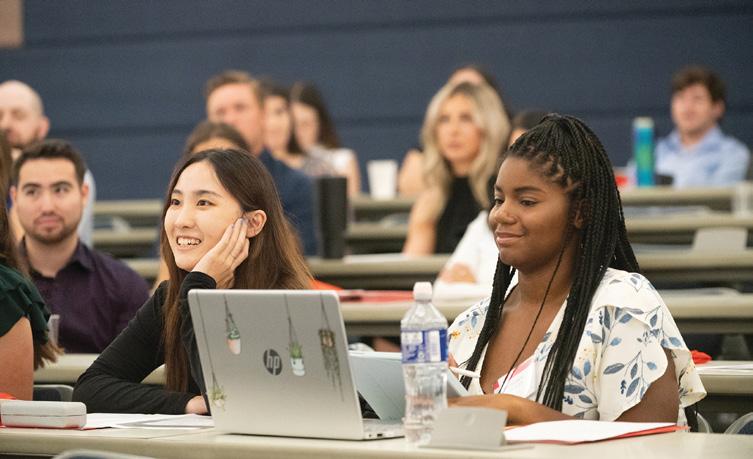




TWO INNOCENT MEN WHO SPENT A COMBINED TOTAL OF NEARLY 50 YEARS in prison have been exonerated. Global companies now have a toolkit to integrate responsible human rights principles into their contracts and establish protocols for compliance. U.S. consumers now have a unique online tool to compare homeowners’ insurance using information that insurance companies don’t share. These are just a few results of the transformative research being conducted at Rutgers Law School’s academic centers in Camden and Newark, New Jersey.
Our passionate and dedicated faculty at Rutgers Law School’s academic centers are revolutionizing the legal landscape by spearheading groundbreaking scholarship across diverse fields of study. Their pioneering work delves into critical policy and legal issues, propelling us forward with innovative solutions and profound insights. This is evident in the international symposiums and conferences being hosted at Rutgers Law; the incisive reports being produced; the unparalleled thought leadership in numerous journals and publications; and the awards and honors bestowed on our faculty and alumni. In this newsletter, we offer a glimpse of the work at our academic centers over the past year on each of our campuses. I invite you to immerse yourself in the scholarship we showcase here, ranging from business to gender justice to immigration and more. Across these disciplines, our community shares a vision: a compassionate justice served by professionals who understand how the law affects people and society.
•••••••••••• CENTER FOR CORPORATE LAW AND GOVERNANCE
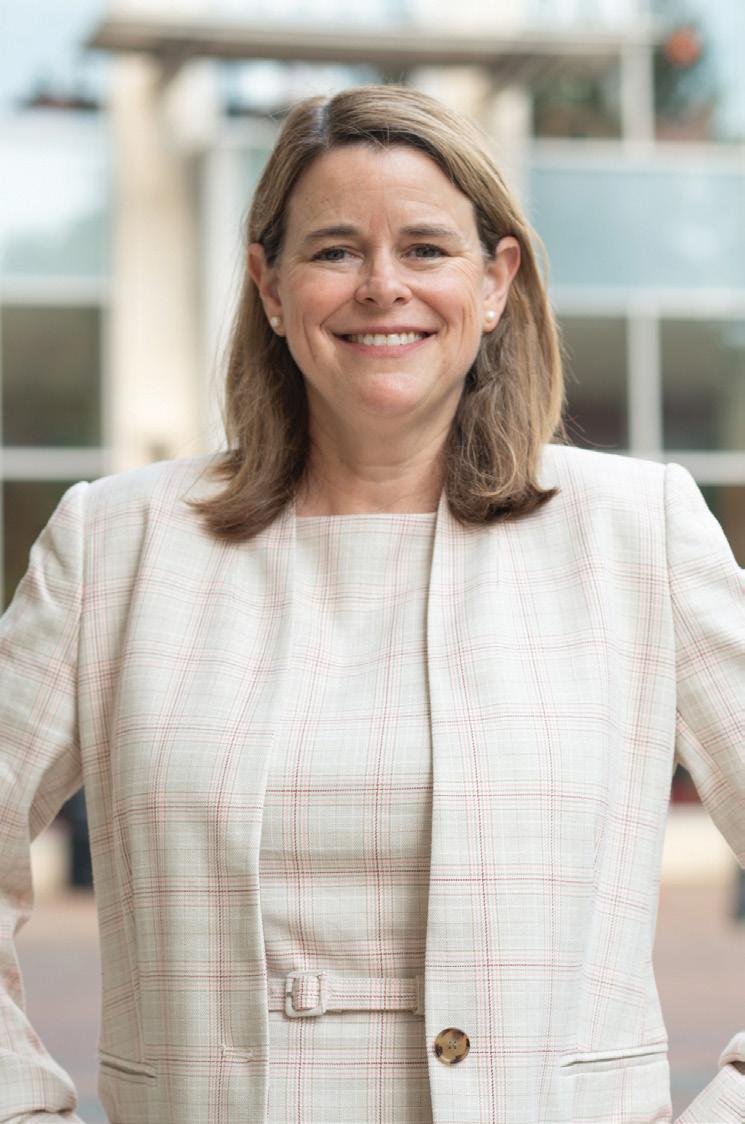
RUTGERS LAW PROFESSOR MATTEO GATTI IS the first Rutgers Law School faculty member to be appointed to the European Corporate Governance Institute (ECGI). He was part of the cohort of 56 new research members upon whom this prestigious international honor was bestowed in January 2023. Prof. Gatti is now eligible to publish his academic work on corporate governance and stewardship in the ECGI Working Paper Series (Law and Finance), which is widely known for its reliable content, global outlook, and interdisciplinary nature. It is used by scholars, practitioners, and policymakers to help shape informed views and debates on a wide range of global topics. Hailing from Europe, North America, the Middle East, and Asia, new ECGI research members are admitted based on the quality of their academic work in the field of corporate governance.
“ECGI is a unique platform where global scholars from mixed disciplines can publish their work and interact with each other and
Read more from the Center for Corporate Law and Governance
Use these QR codes to learn more about what’s happening at our centers in these published newsletters.
with experienced practitioners to identify and study the challenges faced by corporations, investors and society,” said Ernst Maug, chair of the ECGI selection committee. “The latest appointments will contribute to this global dialogue by capturing even more of the research being conducted in this field around the world, while maintaining the high standards that are synonymous with ECGI.”
Prof. Gatti teaches business organizations, mergers and acquisitions, and corporate finance at Rutgers Law School in Newark. He is the author of a book and several journal articles. Professor Gatti received his J.D. summa cum laude from the University of Milan, his LL.M. from Harvard Law School, and his S.J.D. in Corporate Law
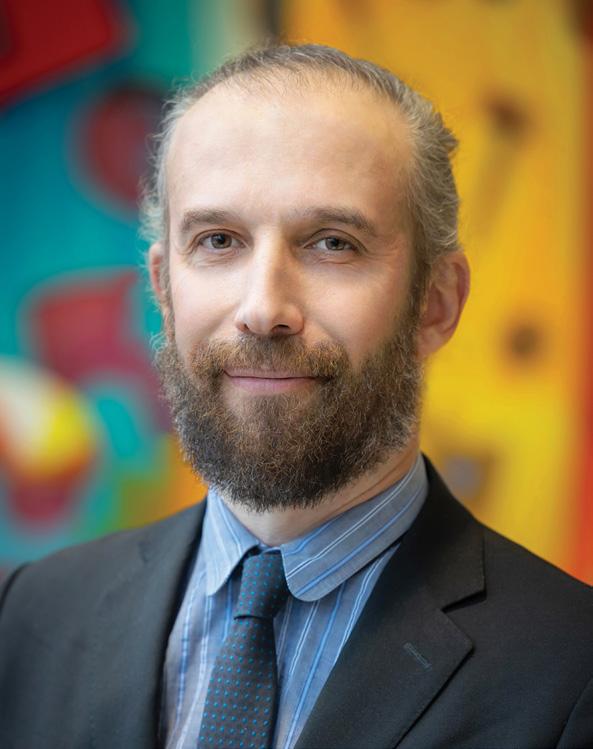
from the University of Brescia. He began his legal teaching career in the corporate and commercial law department at the University of Milan School of Law then, after receiving his LL.M., taught courses and seminars in securities regulation, mergers and acquisitions, and corporate finance as an assistant professor at the University of Milan–Bicocca School of Law. Prior to joining the Rutgers faculty, Professor Gatti also practiced corporate and M&A law at Cleary Gottlieb in Rome, Milan, Moscow, and New York, and served as M&A and international in-house counsel for a cable TV company listed on the New York Stock Exchange.
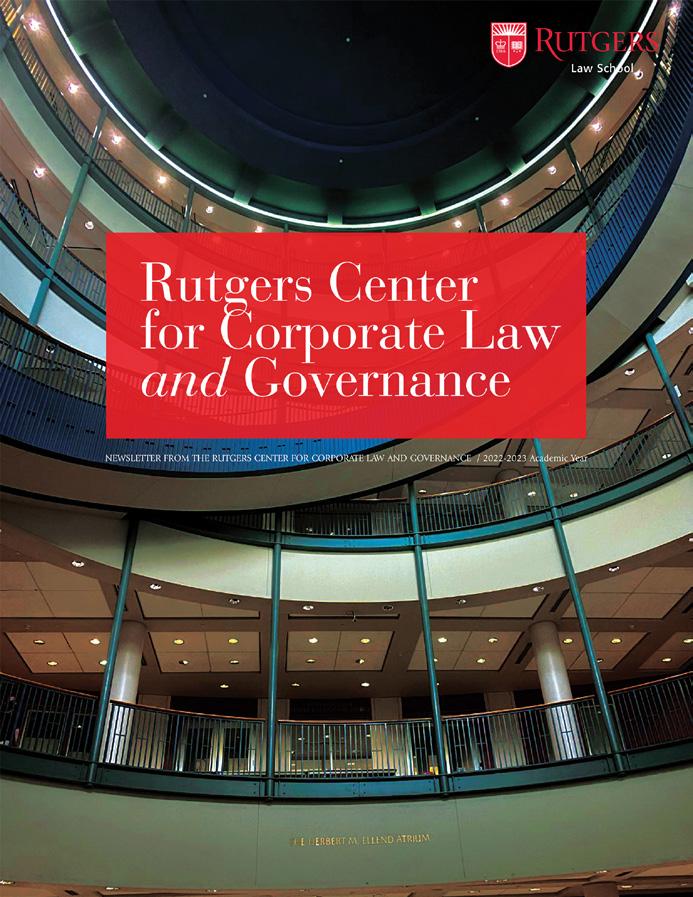
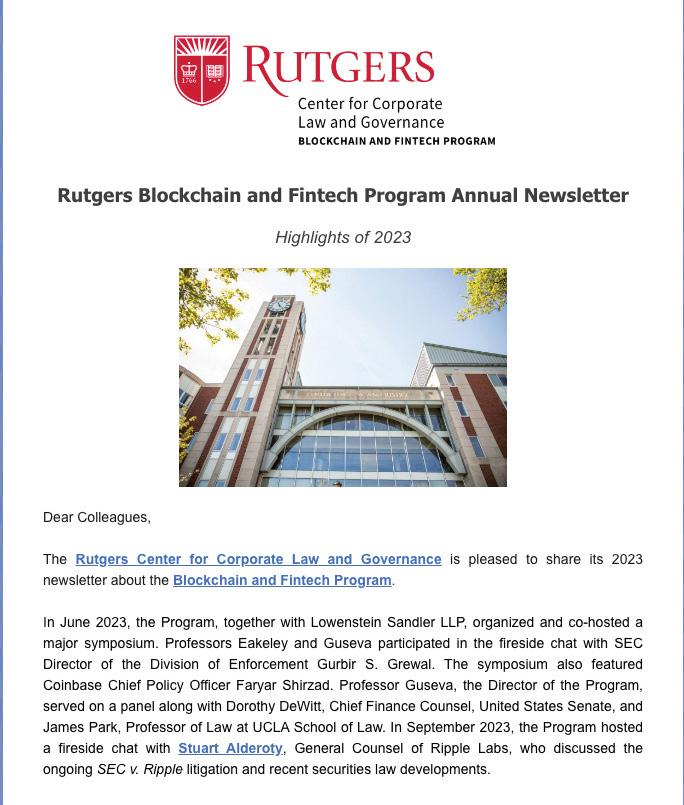 Professor Matteo Gatti
Rutgers Law Dean Johanna Bond
Professor Matteo Gatti
Rutgers Law Dean Johanna Bond
FOR
LAW AND GOVERNANCE (continued)
PROFESSOR YULIYA GUSEVA RECEIVED THE 2023 UNIVERSITY BLOCKCHAIN RESEARCH INITIATIVE (UBRI) Educator Award for the faculty member “who created the most outstanding program that makes the biggest impact.” She received the award at UBRI Connect, the annual conference bringing together UBRI’s 50+ university members from around the world. Nominations were submitted by participating universities on four continents.
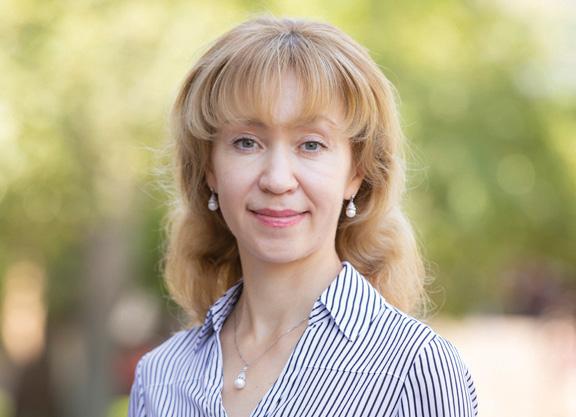
Professor Guseva leads the Center’s Blockchain and Fintech Program which engages in multidisciplinary blockchain and fintech research, as well as a curriculum- and project-based set of activities designed to advance faculty and student engagement in blockchain, cryptocurrency, cyber-security, fintech, and related subjects. The Program’s Collaboratory is a series of gatherings of leading lawyers, former regulators, and academics interested in regulatory and industry developments in fintech, defi, crypto, and blockchain-based businesses.
LOOK AT THE SMARTPHONE IN YOUR HAND, the clothing in your closet, or the sneakers on your feet. How can you be sure they were made without the use of child or trafficked labor, or that human rights weren’t violated somehow in the making of these items? Thanks to the work of Rutgers Law School Professor Sarah Dadush and an American Bar Association (ABA) working group, it’s easier than ever for companies to incorporate next generation human rights clauses into their international supply contracts and, hopefully, make a positive impact on global supply chains.
If you ask Dadush, many contracts for the manufacturing and supply of goods do not contain human rights obligations, and the ones that do fall short. Why? They often include static promises by the supplier to uphold human rights, but no obligations to put processes in place to ensure that such promises are kept. They tend to put all the responsibility for upholding human rights solely on the supplier, without considering how the buyer’s own behaviors and purchasing practices can severely limit the supplier’s ability to perform. And they typically allow the buyer to terminate the contract immediately if something bad happens, without providing remedy to the actual victims of human rights abuses—the workers themselves.
To address the shortfalls of traditional contracting, the ABA working group created a set of model contract clauses, the MCCs 2.0, which companies can integrate directly into their international supply contracts. These new model clauses say that it’s not enough for the buyer to simply prohibit child and trafficked labor, inadequate health and safety standards, or wage theft. Instead, both buyers and suppliers should carry out ongoing human rights due diligence (HRDD) by proactively examining their supply chain, identifying where the most severe human rights risks appear, recording where and what these are, and then taking affirmative measures to prevent those risks from graduating into harm.
Another attribute that sets these clauses apart from the status quo is the involvement of workers throughout the due diligence process and, especially, the remediation process. Essentially, the clauses require that suppliers have transparent and accessible internal grievance mechanisms in place and that, if an adverse impact occurs, the workervictims be involved in the preparation and implementation of a remediation plan.
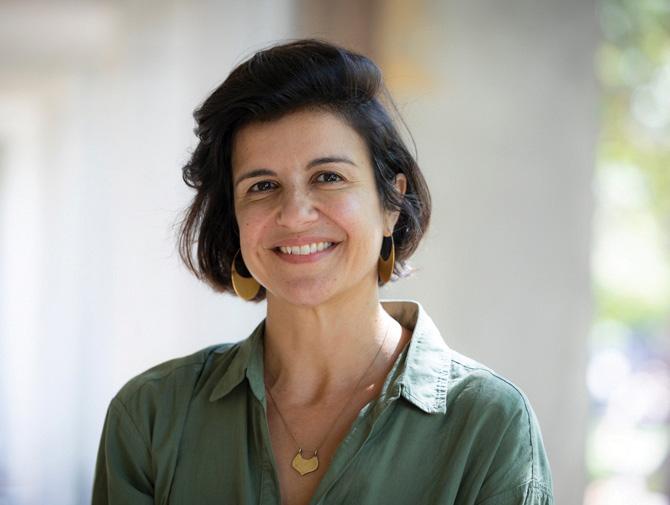
Once the clauses were published in 2021, it was time to publicize them and get uptake by a wide range of stakeholders, including buyers, suppliers, investors, private standards-setters, policymakers, and others; however, the working group wasn’t created for this task. This is why Dadush and her close collaborator, business and human rights specialist Olivia Windham Stewart, launched the Responsible Contracting Project (RCP). RCP is the flagship project of the Rutgers Law School Business & Human Rights Law Program, which is run out of the law school’s Center for Corporate Law and Governance.
RCP is currently working to integrate responsible contracting principles into commercial contracts and develop guidance for companies on HRDD alignment and legal compliance, and recently launched its own toolkit. RCP is also available to work one-toone with companies, law firms, investors, and others, to rework their contracts to improve human rights outcomes and achieve legal compliance.
“The dream is that our work shifts how companies engage with one another and moves them toward a more cooperative and relational type of contracting that can do a much better job of protecting human rights,” says Dadush. “By no means do we think that contracts alone are the solution, but we do believe that they are a critical component of supply chain governance that, if done right, can lead to major improvements for human rights domestically and internationally.”

Nicole Aguiar ’24 (Camden)
Nicole is a third-year student at Rutgers University–Camden. Prior to law school, Nicole studied at Boston College where she earned a bachelor’s degree with a major in Communications and a minor in International Studies. After graduating from undergrad, Nicole worked for an advertising agency in Boston. She then moved to Medellín, Colombia, where she volunteered for a non-profit, serving as an English teacher in a rural community.
After more than two years of fulfilling work in Colombia, Nicole moved back to the Philadelphia region, where she worked for a high school while applying to law school.
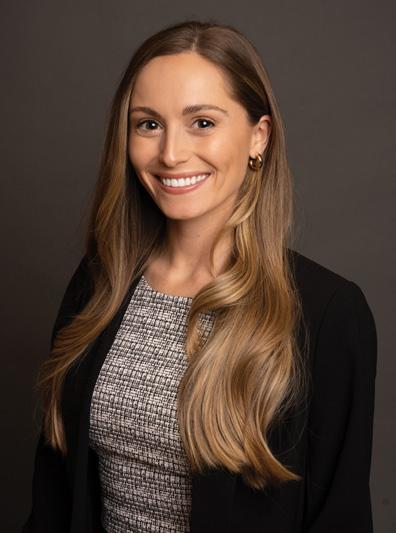
During her time in law school, Nicole has served as a teaching assistant for Legal Writing and Constitutional Law and as a research assistant contributing to work on the Wright & Miller civil procedure treatise.
In the summer after her 1L year, Nicole interned for Judge Quiñones Alejandro in the Eastern District of Pennsylvania.
During her 2L year, she externed for Judge Luis Felipe Restrepo in the U.S. Court of Appeals for the Third Circuit. After her 2L year, Nicole was a summer associate at Reed Smith in Philadelphia. She will return to Reed Smith as a full-time associate in fall 2024.
Anwesha is a second-year law student at Rutgers Law School in Newark. She received her Bachelor of Arts and Bachelor of Laws (B.A. LL.B.) from Symbiosis International University in India and her Master of Laws (LL.M.) from Liverpool John Moores University in the United Kingdom in International Business, Corporate, and Financial Law as a Hodgson Law Scholar. Before attending law school, Anwesha worked as an assistant professor of law, an associate, and a research assistant in India and the United Kingdom. Anwesha spent her 1L summer at McCarter & English in Newark, working in business litigation and other practice groups. She will spend her 2L summer at K&L Gates in Newark. Anwesha is a Teaching Fellow for the Minority Student Program’s Legal Skills Study Group and a Research Assistant for Professor Steve Gold. She is Co-Chair of the Women’s Law Forum and Co-Vice President of the Society for Corporate Law and Governance. Anwesha volunteers for New Hope Community Ministries in Prospect Park and Volunteer Lawyers for Justice in Newark while in law school, often interpreting and preparing various client paperwork.
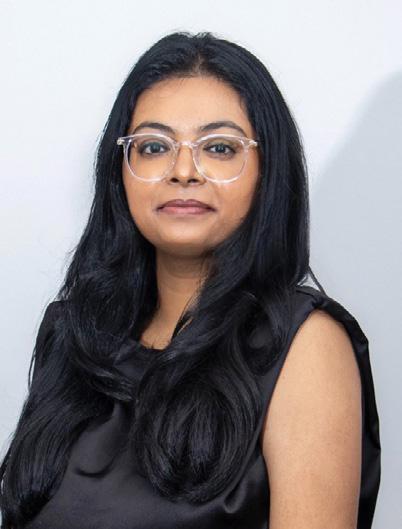
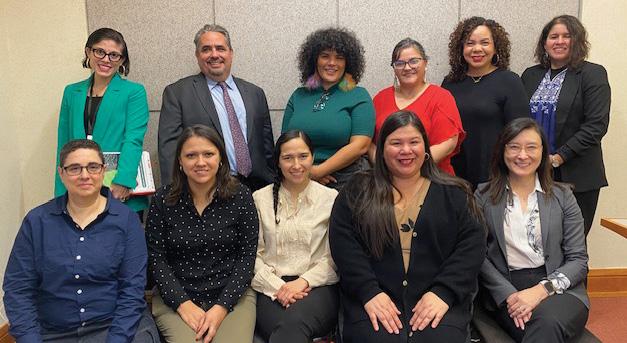
ON JANUARY 31, the Center for Gender Justice and the Law, the Center for Transnational Law, and Rutgers Law School hosted an unprecedented summit on international feminism in Latin America and the Caribbean. Faculty organizers were Professors David Lopez, Aníbal Rosario Lebron, Sarah Medina Camiscoli, Jorge Contesse, and Suzanne Kim. The first panel centered on the changes won and challenges faced in the areas of reproductive rights in Mexico, Colombia, and Argentina. The second panel highlighted the grassroots movements for gender justice led by organizers and activists in Latin America. The final panel highlighted the unique circumstances people face in the Caribbean and the specific challenges that Afro-Latina and Indigenous women encounter.
Delivering the keynote address was Fatima Goss Graves, President and CEO of the National Women’s Law Center. Mónica Ramírez, a nationally known activist and founder of Justice for Migrant Women, delivered the closing remarks.
In support of scholarship and public education, the Center for Gender Justice and the Law has compiled a resource list on Latin-American and Caribbean Feminism, which can be found using the QR code below.
The Center for Gender Justice and Law is proud to have created the Gender Justice and Law Summer Public Interest Fellowship for Rutgers Law students in Camden and Newark. Daniel Adamek ’24 served as the inaugural summer public interest fellow with a placement at Brooklyn Defenders’ Family Defense Practice. Dan discusses his experience below:
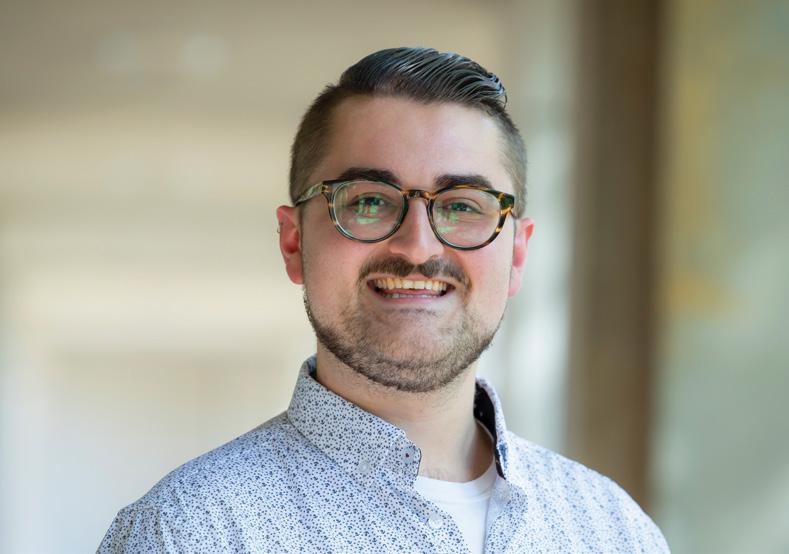
This past summer, I had the privilege of working at the Brooklyn Defenders’ Family Defense Practice (BDS) as the inaugural Center for Gender Justice and Law (CGJL) summer public interest fellow. BDS is the primary provider of legal representation to parents and other caregivers accused of abuse or neglect in Kings County Family Court. BDS’s clients in family court are disproportionately mothers, a vast majority of whom are poor, Black, and/ or immigrant women and include a significant number of mothers who, as children, were involved in the child welfare system. BDS provides zealous representation to caregivers facing the removal of their children to the foster care system with the goal of keeping families together safely or reunifying families as soon as possible when separation occurs. As a legal intern, I was able to see firsthand how the family policing system operates with impunity and causes widespread harm to families, especially Black families, under the guise of “child protection.” It was jarring to witness just how routinely family separation took place, and how the justification for family separation was so often due to families’ poverty, systemic racism, lack of stable housing or childcare, or mental health diagnoses or intellectual disabilities. Throughout my time at BDS, I was able to work on all stages of child welfare proceedings, from counseling clients at intake—the family court’s equivalent to arraignments in criminal courts—to assisting in preparation for emergency hearings for family reunification to writing complex evidentiary motions in limine prior to trials. It was a pleasure to be CGJL’s inaugural summer public interest fellow working at the intersection of gender and racial justice to keep families together safely and to defend them against attacks on their constitutional right to family integrity.
Dan Adamek is a third-year law student at Rutgers Law School in Newark. In addition to being the Center for Gender Justice and the Law’s inaugural summer fellow this past summer, he also serves as a Child Advocacy Fellow in the Rutgers Child Advocacy Clinic. Before law school, Dan worked at an impact litigation non-profit based in New York City fighting injustice on behalf of young people in child welfare and juvenile justice systems across the United States.
Back Row: Rutgers Law Professor Sarah Medina Camiscoli, Rutgers Law Professor David Lopez, Natalie Muñoz (Assistant Professor, RutgersNewark Social Work Department), Gloria OrregoHoyos (Health and Human Rights Initiative Fellow, O’Neill Institute), Mayra Díaz-Torres (Program Director, Profamilias y Colecctivo Ilé), Carolina Jimenez (President, Washington Office on Latin America)
Front Row: Libby Adler (Professor of Law and Women’s, Gender, and Sexuality Studies, Northeastern University), Sylvia Serrano Guzman (Co-Director of the Health and Human Rights Initiative, O’Neill Institute), Aura Guerrero (Associate with the Health and Human Rights Initiative at the O’Neill Institute), Mónica Ramírez (Founder/President, Justice for Migrant Women), Rutgers Law Professor Suzanne Kim
THE CARE AND WORKER JUSTICE PROJECT of the Center for Gender Justice and Law is pleased to have served this year as a forum for advocates, scholars, and thought leaders on law and policy reform addressing care workers’ legal needs and legal solutions for care needs of all workers. Public education programs have included reproductive care issues in the workplace and leadingedge federal protections for pregnant workers and lactating workers and will also include a program on childcare infrastructure reform in New Jersey and nationwide. To improve enforcement of civil rights, the Care and Worker Justice Enforcement Project is tracking claims of violations of the newly effective federal Pregnant Workers Fairness Act (PWFA) and the federal Providing Urgent Maternal Protections (PUMP) Act. The Project is overseen by Professor Suzanne Kim with support from Care and Worker Justice Project Research Fellow and Rutgers Law student Laura Ryan ‘24.
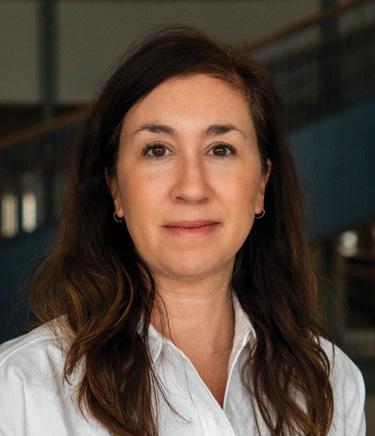
Signed into law in 2022, the PWFA gives workers the affirmative right to receive “reasonable accommodations for known limitations related to pregnancy, childbirth, or related medical conditions, unless it would be an undue hardship on the employer.” (Pregnant Workers Fairness Act, 2022). The PWFA is a milestone for civil rights law in the U.S. and closed a gap in federal law that left pregnant and postpartum workers without remedy if they required accommodations to prevent health complications and allow them to continue working. Prior to its passage, federal law provided workers the right to receive accommodations only if they could identify other “similarly-situated people in their workplace” who received accommodations, leaving many workers without legal protection or job security. (A Better Balance, 2023).
Also passed in 2022, the PUMP For Nursing Mothers Act requires employers to provide “reasonable break time for an employee to express breast milk for their nursing child,” and a place to pump at work that is shielded
continued on page 11
••••••••• CENTER FOR IMMIGRANT JUSTICE
NEW NAME, SAME MISSION! The newly-named Center for Immigrant Justice (CIJ) reflects CIJ’s established approach in centering immigrants in our research, policy, and advocacy as we advance laws and policies rooted in justice for immigrants and their families.
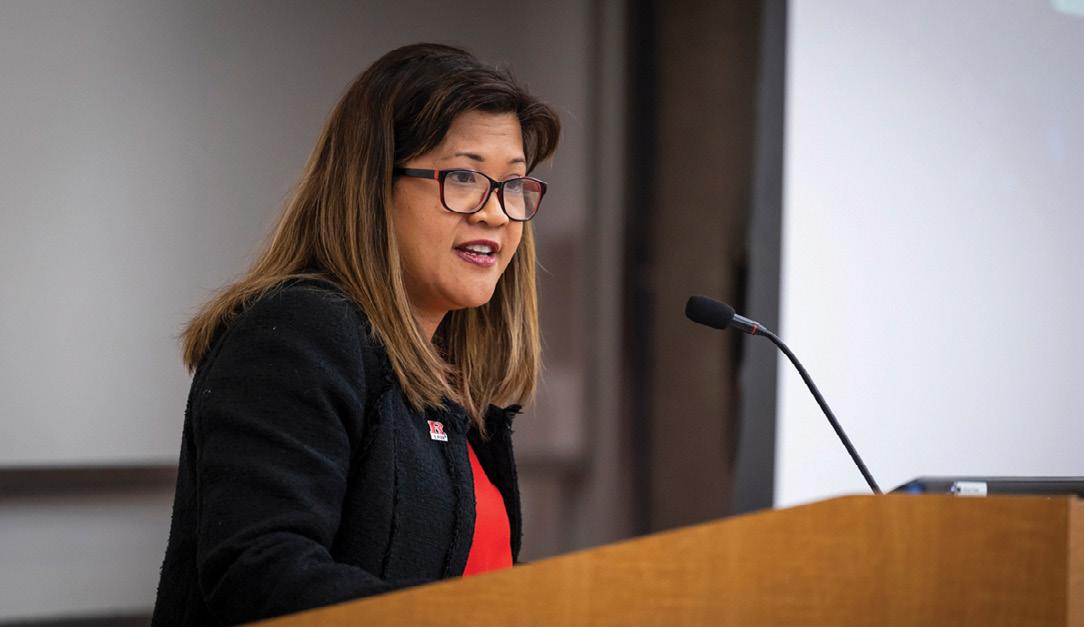
We are excited to welcome back Professor Rose Cuison-Villazor to CIJ! After serving as Interim Co-Dean of Rutgers Law School in Newark, Professor Cuison-Villazor has resumed her Director position of CIJ as of July 2023. We
thank Professor Shani King, who is now ViceDean in Newark, for serving as the Director during the 2022-2023 academic year.
Research, Policy, and Advocacy Projects
This year, CIJ is working on a number of exciting research and policy projects.
In July 2023, CIJ received a new grant from the Pratt Foundation that will fund a research project exploring the implementation of New Jersey Professional and Occupational Licensing Law (S2455). Passed in 2020, S2455 established that “lawful presence in the United States shall not be required to obtain a professional or occupational license.” Our project intends to assess the extent to which the new law has changed the practice and experience of the licensing process in New Jersey to ensure that professional licenses are accessible to individuals regardless of their immigration status.
The project is led by a team of current and new members. CIJ Visiting Scholar Dr. Peter Mancina, who has partnered with CIJ on several projects in the past, including this 2022 report, will collaborate with Dr. Nicolas Eilbaum, also a CIJ Visiting Scholar; Jason Hernandez, Director of the Rutgers Immigrant Community
••••••••• CENTER FOR RISK AND RESPONSIBILITY
Assistance Project; law students; and CIJ Fellows Erick Guerra and Hanna Wargula.
Professor Cuison-Villazor, on behalf of CIJ, has co-authored an amicus brief filed before the U.S. Court of Appeals for the Eleventh Circuit to challenge the state of Florida’s new alien land law (S.B. 264), which bars certain Chinese individuals from owning land in the state. In Shen v. Simpson, CIJ partnered with the Boston location of Foley Hoag LLP, the University of California Davis School of Law Aoki Center for Critical Race and Nation Studies and the Fred T. Korematsu Center for Law & Equality at Seattle University and several other racial justice and civil rights organizations to support the plaintiffs’ motion to enjoin the implementation of S.B. 264. In February 2024, a unanimous court granted the motion with respect to two of the plaintiffs, holding that they have shown “a substantial likelihood of success” that federal law preempts S.B. 264. The concurring opinion written by Judge Nancy Gbana Abudu echoed the arguments presented by CIJ et al.’s amicus brief that S.B. 264 arguably discriminates on the basis of race in violation of the Equal Protection Clause of the Fourteenth Amendment.
AFTER EVERY MAJOR DISASTER, many homeowners are shocked to learn that their homeowners insurance fails to pay for their losses. The same is true in everyday events; a plumbing leak that causes thousands of dollars of damage may not be covered under homeowners insurance.
The Rutgers Center for Risk and Responsibility at Rutgers Law aims to change that through its new online tool, RU InsureScore. It is a unique tool that gives consumers information about coverage that insurance companies don’t, and it compares and rates policies of major national insurers. Jay Feinman, Co-Director of the Center and Distinguished Professor Emeritus at Rutgers Law, described how the tool works and why it’s useful to consumers.
Why is RU InsureScore needed?
Insurance is the only product where consumers don’t know what they are buying before they buy it. Insurance companies almost never provide copies of policy language or complete summaries of policy terms to prospective policyholders.
Even if consumers had access to policies, most of them wouldn’t read or couldn’t understand the long, complex legal documents, or be able to anticipate the many ways in which a loss might occur or the problems that can arise if it does. Many people only discover the limitations of their coverage when they have a claim and find they don’t have adequate coverage.
What information does RU InsureScore provide?
The tool evaluates key elements of each policy— what things, risks, and liabilities the insurance covers and what the insurance pays—on a five-point scale. It also provides a summary rating on a 100-point scale, much like Consumer Reports does for consumer products. The website gives consumer-friendly explanations of key terms and the basis for the ratings.
What policies are included?
The comparison includes basic policies from 11 of the 20 largest homeowners insurance companies in the U.S., including household names such as Allstate and State Farm. The first challenge of this project—and one reason it never has been attempted before—was to acquire policies across the country from major insurers. The companies wouldn’t provide them, so we spent many hours on the websites of the few states that publish policies and the National Association of Insurance Commissioners’ online filing system.
What are the ratings based on?
We used three guiding principles in evaluating the policies: First, how frequently does a loss covered by a particular term arise, and how large are the average losses? For example, water damage and freezing losses account for about one-fourth of homeowners’ claims, so coverage for them is very important. Second, how much do the terms vary among policies? For example, coverage for plumbing leaks varies significantly, so it is given more weight, but replacement cost coverage for the house is essential, but practically all policies provide it, so it is given less weight. Third, what kinds of coverage do policyholders reasonably expect? For example, homeowners reasonably expect their insurance to provide better coverage for large financial losses than for small losses.
How can homeowners use RU InsureScore in buying insurance?
Homeowners too often focus on price or warmand-fuzzy advertising when buying insurance.
RU InsureScore provides an accessible guide to coverage. The comparison gives a rough ranking of the coverage provided by different companies. Just as important, the factors used in the rankings and described on the website give a list of questions to ask and things to think about when buying a policy.
continued on page 10

The Rutgers Center for Risk and Responsibility frequently addresses homeowners insurance in its research and policy recommendations. Its Protection Gap project describes the extent to which significant property losses increasingly are not covered by homeowners insurance. The Center has developed several tools that regulators could use to reduce protection gaps and to improve the market for homeowners insurance. The Homeowners Insurance Coverage Summary provides a template for a summary of key terms of homeowners insurance policies. Like the Summary of Benefits and Coverage required by the Affordable Care Act for health insurance, this tool would give consumers key information in an accessible form so they could shop more effectively. The Homeowners Insurance Claims Quality Summary provides a template for current, helpful statistics with which consumers can compare companies as to how promptly and fairly they pay claims.
A RECENT CSRR REPORT REVEALS extensive government surveillance and intelligence gathering, with little to no accountability.
It sounds like the makings of a conspiracy theory: the idea that we are under surveillance by covert, government-funded centers tasked with gathering secret intelligence on residents. But according to a recent report from Rutgers Law School’s Center for Security, Race and Rights (CSRR), not only do these centers exist but, worse yet, there is little to no oversight or accountability in how their extensive data is collected, used, and shared. The result is a practically unchecked intelligence gathering program, an assault on privacy, and a gradual erosion of civil liberties—especially in communities of color. All of this, as well as suggestions for improved oversight, is in CSRR’s new report titled, “Shining a Light on New Jersey’s Secret State Intelligence System.”
To improve information sharing between state and federal agencies, and prevent future terrorist attacks, the 9/11 Commission established state-based intelligence outposts called fusion centers. Each state has one, and some larger states like Texas and California have several. Right here in New Jersey, ours is called the Regional Operations Intelligence Center (ROIC).
For the past 20 years, the ROIC and other fusion centers have transformed into comprehensive, covert intelligence hubs for federal, state, and local law enforcement, collecting data on residents with very minimal if any links to actual, concrete terrorist threats.
“There is insufficient information about the function of fusion centers in general, how they gather their info, with whom they share it, and whether they have a legal basis for doing so—if the information is accurate in the first place,” says Sahar Aziz, CSRR director. “This entire process is clothed in secrecy and relies purely on self-regulation. Those two characteristics together tend to become a recipe for the abuse of authority.”
To understand more about New Jersey’s own ROIC, CSRR conducted a year-long investigation. Here’s what they found:
1. Little to No Transparency or Accountability
The ROIC operates outside the checks and balances of state law enforcement, and there is no internal mechanism in place to sound the alarm in case of unconstitutional intelligencegathering. Thus, New Jersey residents have no way of knowing if unlawful practices take place in our state. During CSRR’s investigation, countless agencies stonewalled questions of vast public importance and revealed the extent to which the ROIC will go to maintain a wall of secrecy.

2. Unchecked Discretion
Fusion centers apply intelligence-led policing methods to their work with law enforcement, meaning that state and local police can gather volumes of information on any person within US borders, essentially circumventing probable cause requirements. The ROIC is one of the largest fusion centers in the US, with about 100 staff members and significant resources at its disposal but has yet to prove how many terrorist plots it has helped foil or how it ensures that New Jersey residents’ civil liberties are protected against unwanted surveillance.
3. Facilitation of Mass Incarceration of Minority Communities
CSRR’s report revealed that, in Camden, collaboration between the ROIC and local police has led to well over 150 documented surveillance devices that watch, listen, and scan residents at all hours of the day. And while there hasn’t been any concrete evidence that the ROIC has thwarted terrorism, its actions have supported mass warrant sweeps for people with outstanding bench warrants or parole violations, leading to mass arrests and incarcerations of low level, almost exclusively Black and Brown offenders engaging in non-terrorist, non-violent acts.
LOOKING AHEAD
The report recommends oversight in various forms, including the appointment of a public advocate, the passage of state legislation supporting transparency and accountability for any possible legal violations, and the establishment of a people’s audit of the fusion center, which would gather multiple civil organizations at the state and local level to demand more information about how funds are allocated in the intelligence community and whether intelligence services are actually preventing the crimes they claim to stop.
“An audit like this would incentivize adherence to the law and disincentivize abuses of power,” Aziz says. “Our report arms government officials and other stakeholders with information and analysis so they can inquire more about what these taxpayer-funded entities are doing outside of the public eye and, ideally, impose meaningful oversight.”
Presumptively Antisemitic: Islamophobic Tropes in the
This CSRR report examines how Islamophobia works to fuel and sustain spurious allegations of antisemitism to shame and silence critics of unchecked war crimes and crimes against humanity by the state of Israel. According to CSRR, the demonization of pro-Palestinian voices in the United States has risen to a fever pitch—particularly when those voices are Muslim and Arab. “Presumptively Antisemitic: Islamophobic Tropes in the Palestine-Israel Discourse” offers recommendations for U.S. civil society, universities, and elected officials to help confront and counter Islamophobia and genuine antisemitism—while maintaining support for the human rights of Palestinians.
SAHAR AZIZ, FOUNDING DIRECTOR of the Rutgers Center for Security, Race & Rights, was elected to the Law & Society Association Board of Trustees.
Professor Aziz’s scholarship adopts an interdisciplinary approach to examine intersections of national security, race, and civil rights with a focus on the adverse impact of national security laws and policies on racial, ethnic, and religious minorities in the U.S. The Law & Society Association is an interdisciplinary scholarly organization committed to social scientific, interpretive, and historical analyses of law across multiple social contexts.
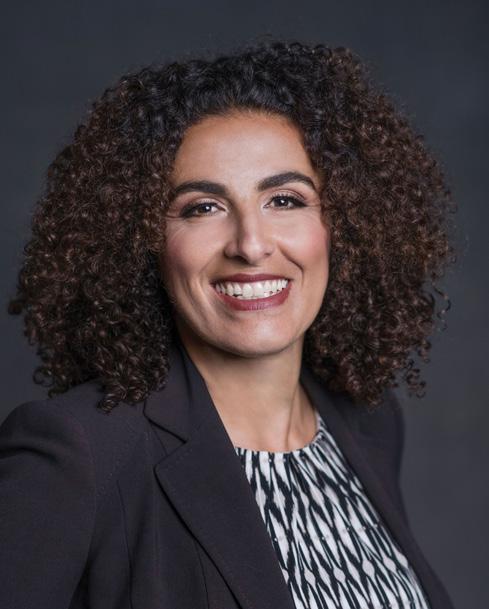
AN INTEGRAL PART of our work at the Center for Security, Race and Rights (CSRR) is training law students as they prepare to be zealous and competent advocates in their legal careers. As such, CSRR’s law fellowships offer an opportunity to take what law students learn in the classroom and put it into action through public education, advocacy, and research. Our four Rutgers law student fellows (Samantha Egge, Hani Jawabrah, Hakfa Oksuz, and Raiyan Hossain [not pictured]) have made essential contributions to the research underpinning CSRR’s most recent reports, as well as forthcoming reports, each centering the experiences of America’s diverse Muslim, Arab and South Asian communities. They have also taken the lead in public outreach and community coalition efforts addressing the most pressing civil and human rights challenges facing CSRR’s diverse constituency within New Jersey and across the country.
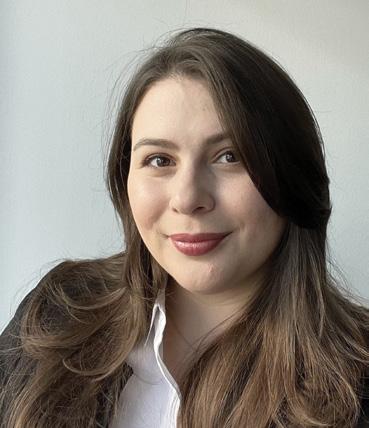
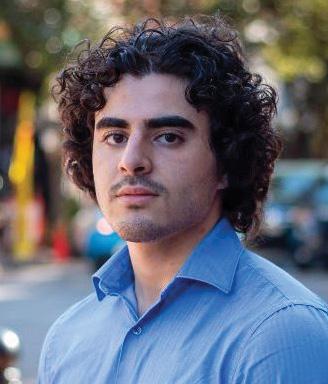
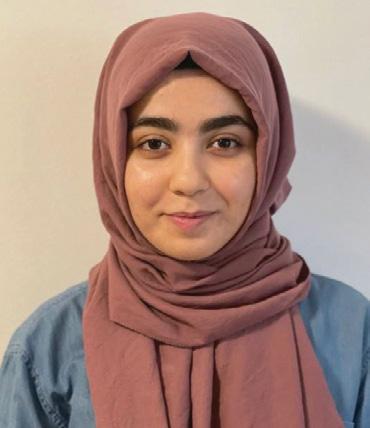
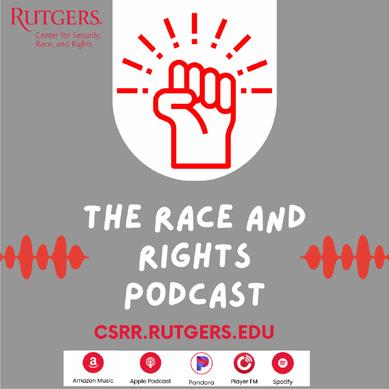
THANKS TO SUMMER INTERNSHIPS OFFERED through the Center for Transnational Law (CTL), Rutgers Law students interested in international law and human rights can hone their skills while living and working like a Latin American local. These unique internships place students in non-governmental organizations across Latin America where they’ll enrich their classroom education with global, hands-on work.
“Being exposed to foreign legal systems is an asset for any lawyer,” says Jorge Contesse, CTL founding director and member of the United Nations Committee Against Torture. “This summer internship program is an opportunity for Rutgers Law students to become better lawyers via exposure to legal work and advocacy in other parts of the world.”
abroad for a semester in Australia and, after graduation, joined the Peace Corps. “I wanted to be immersed in a different environment and gain real world experience before starting law school,” she says. “Once I arrived at Rutgers Law, I knew I wanted to go abroad again. I’ve discovered that I like to live and work in cultures different from my own.”

Placements are available in partner organizations in Argentina, Chile, Colombia, Mexico, and Peru. One Rutgers Law intern spent last summer in Buenos Aires.
Shirley Castillo is no stranger to international travel. As an undergraduate student, she studied
Castillo’s 2023 CTL summer internship placed her with the Civil Association for Equality and Justice in Buenos Aires (“It’s like the Argentinian version of the ACLU,” Castillo explains). Over the course of her month there, she supported the nonprofit’s work by researching various accessto-justice programs from around the world, hoping to discover elements that could be applied in Argentina. For someone who wants to work in international law after graduation, the experience was invaluable.
“I learned a lot about what humanitarian aid looks like and what information is available for governmental fiscal accountability,” she says. “If I decide to work in either of those fields after graduation, I now have the foundational
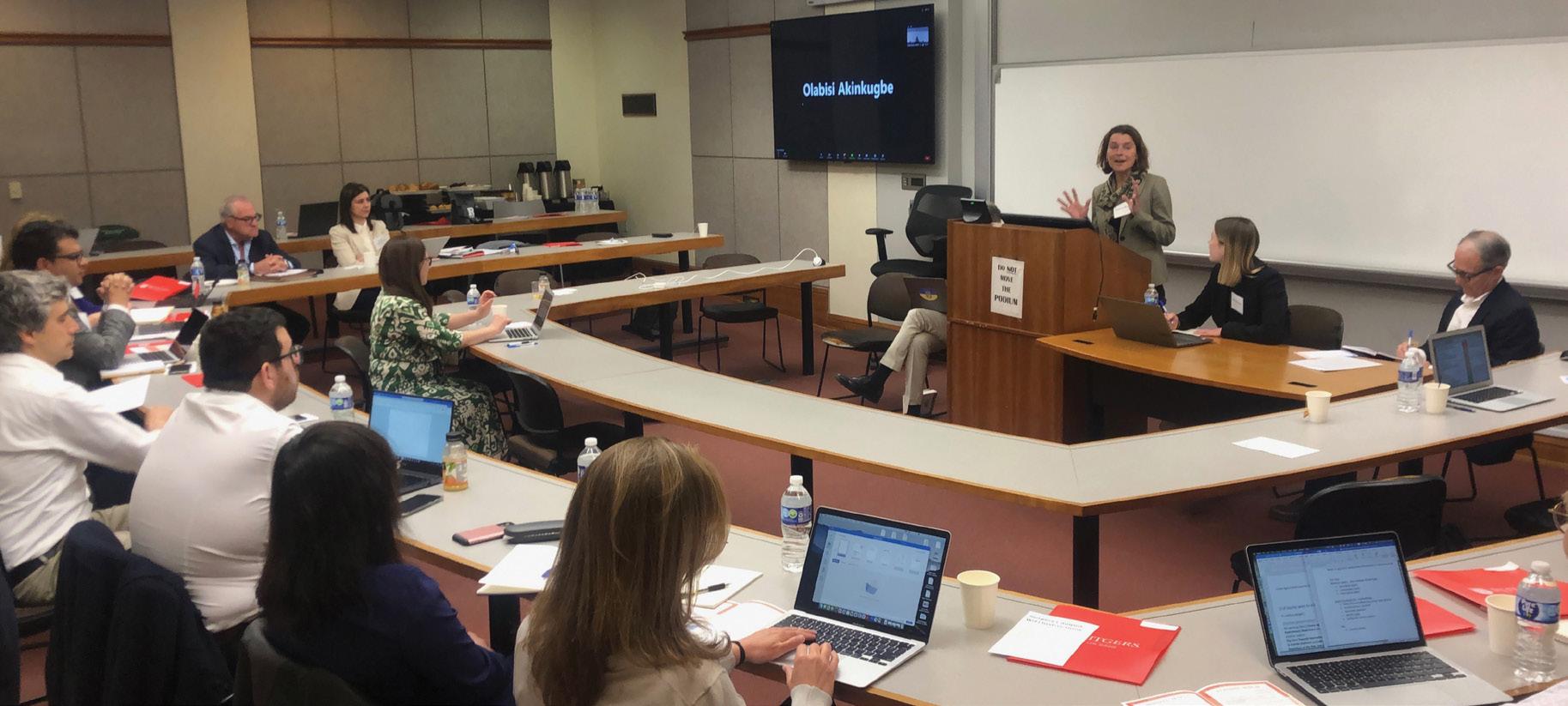
met at Rutgers Law School in Newark for two days to present their work on comparative enforcement of international law and engage in an intense discussion on international and comparative law.
The Center for Transnational Law hosted the workshop in May 2023. Co-sponsored by the University of Baltimore’s Center for International & Comparative Law, the event convened more than 20 scholars from Africa, Australia, Europe, Latin America, and the United States.
“We had a rich conversation. It’s a real treat to host colleagues from literally all over the world to talk about the law,” said Jorge Contesse, Rutgers Law Professor and founding Director of the Center for Transnational Law.
The workshop is part of a research project led by Professor Contesse and University of Baltimore professors Mortimer Sellers and Ioanna Tourkochoriti.
“The project will result in the publication of a book that investigates how nations enforce international law. We look at different areas of international law, such as human rights, the law of the sea, environmental law, international criminal law, the law of war, and international economic law,” Professor Contesse explained.
The global collaboration goes both ways.
Professor Contesse recently presented his work in Europe and South America. In June, he was invited to present his views on equality, non-discrimination and the role of international law in domestic law before Chile’s Constitutional Council, which is drafting a new constitution.
knowledge I’ll need—and I gained it in the real world rather than from a textbook.”
continued on page 11
Castillo’s advice for any student considering the internship? Apply for it! “Even compared to my previous experiences abroad, this internship was uniquely challenging because it was in a law office,” she says. “The subject matter is serious, the practice of law is completely different, and office culture is also different. It can be intimidating, but don’t let that stop you. My advice is to be guided by your interests, instead of your fear of failure.”
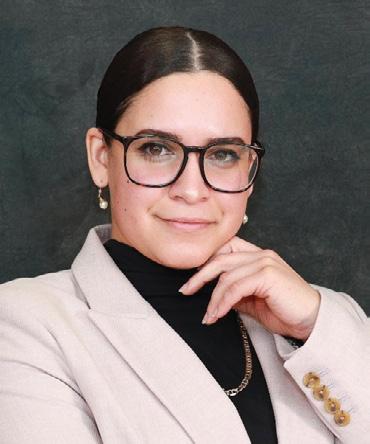
RUTGERS LAW PROFESSOR JORGE CONTESSE was elected to the United Nations (UN) Committee Against Torture (CAT) on October 19, 2023 in Geneva, Switzerland. This is one of the most prestigious posts in the field of international human rights. Professor Contesse joins nine other independent human rights experts who monitor compliance of the UN Convention Against Torture by state parties. Members are elected to a four-year term and can be re-elected if nominated.
In March 2023, the government of Chile nominated Professor Contesse, a native of Chile, to the Committee. He was elected in the first round and received the highest number of votes for new Committee members.
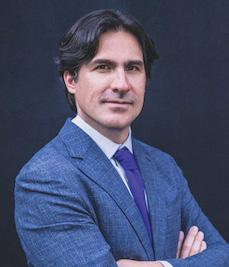
“I am extremely honored to have been elected to the UN Committee Against Torture,” Contesse said. “At a time of immense challenges to the international rule of law, I look forward to working with current and new members to uphold the norms of international human rights law.”
Rutgers Law Dean Johanna Bond remarked, “This is an amazing accomplishment and a rare honor.”
Professor Contesse was also elected to the American Journal of International Law Board of Editors in April 2024. He is a scholar of international human rights and comparative constitutional law, focusing on the judicialization of international law and on the interaction between domestic constitutional actors and international human rights regimes, in particular, the inter-American human rights system. His work has appeared in the American Journal of International Law, the Harvard International Law Journal, the International Journal of Constitutional Law, and the Yale Journal of International Law, among others. Prior to joining the Rutgers Law faculty, he was a Lecturer-in-Law and Director of the Human Rights Center at Diego Portales Law School in Santiago, where he is currently an Adjunct Professor in the Doctoral Program. He is also the founding director of the Rutgers Center for Transnational Law.
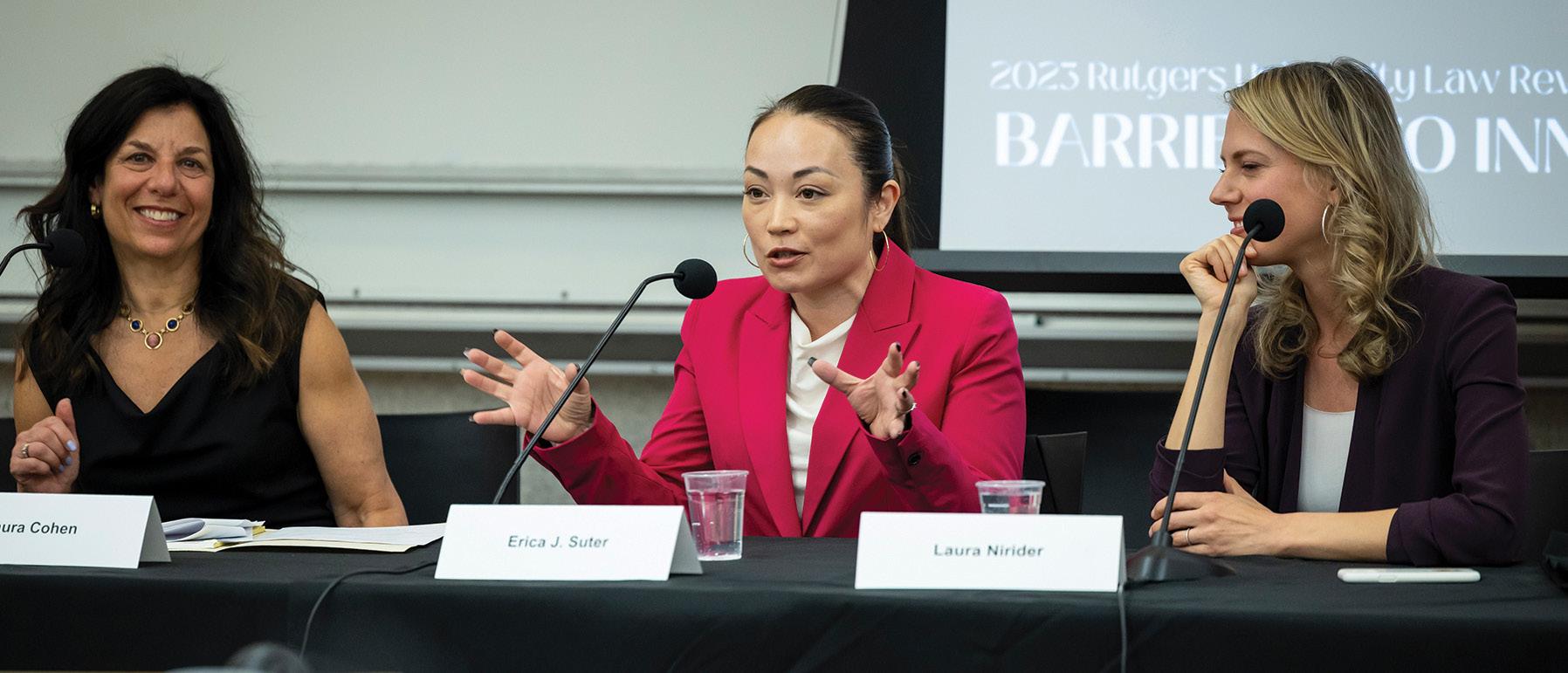
THE NEW JERSEY INNOCENCE PROJECT at Rutgers hosted “Barriers to Innocence: Identifying, Investigating, and Undoing Wrongful Convictions,” a full-day symposium featuring experts on wrongful conviction, legal scholars, and exonerees from around the country. Co-sponsored by the Rutgers Law Review and the Center on Criminal Justice, Youth Rights, and Race, the conference held in March 2023 explored a wide range of issues, including:
• Anatomy of a Wrongful Conviction: The Adnan Syed Case
• Youth, Race, and Wrongful Conviction
• Wrongful Convictions, Racial Injustice, and Economic Inequity
• Conviction Review Units
• Emerging Issues in Wrongful Conviction
• Pursuing Innocence
Adnan Syed, whose case was featured on the “Serial” podcast, surprised participants by calling in to discuss the latest developments in his legal labyrinth.

CLiME RELEASED A COMPREHENSIVE ANALYSIS of city-owned land in Newark, demonstrating how cities can better organize and manage their data about the property they own in order to promote transparency and advance critical policymaking. The report is the result of a partnership over data analysis. For nearly a year, Senior Research Fellow Elana Simon was embedded with the City’s property management division. In addition to helping to revamp the data platform for city-owned inventory, she conducted three unprecedented simulations that demonstrate innovative uses of city property to advance equitable growth in affordable housing, economic development and jobs, and greenspace and placemaking.
Use this QR code to access the latest issue of Rutgers CLiME Newsletter.
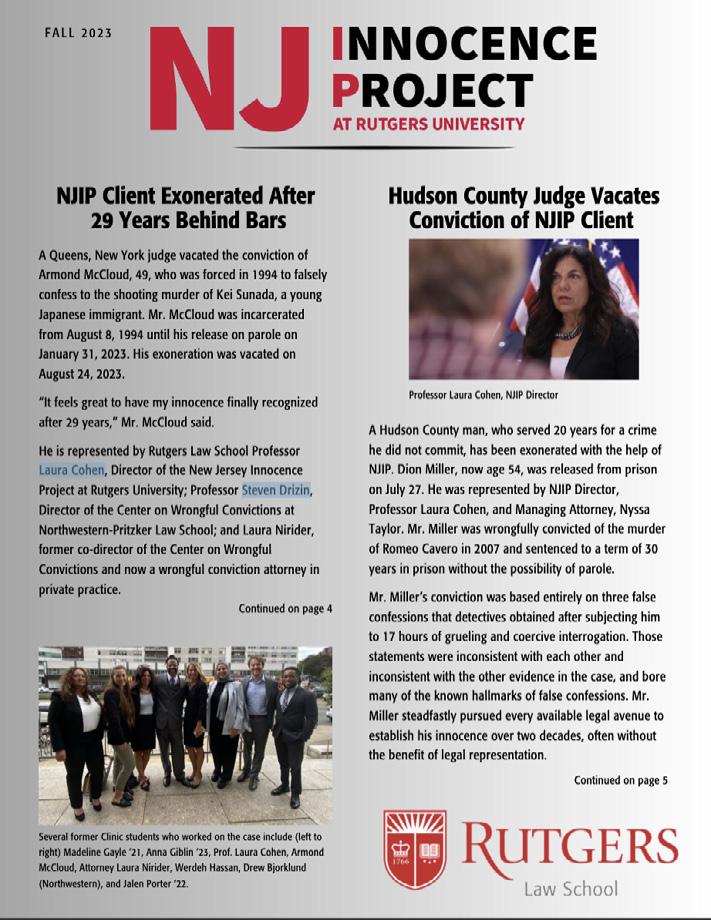
Practitioners, academics, students, and people with lived experience in the system found the program challenging, inspiring, informative and deeply moving. Articles by several of the speakers will be published in an upcoming symposium issue of the “Rutgers University Law Review.”
This memorandum provides useful information regarding the management of a loved one’s affairs (estate) when they have passed. Estate matters can be laborious and emotionally charged. This memo explains probate and administration in New Jersey and provides information to begin navigating the process of managing a loved one’s estate. This memo offers steps to avoid pitfalls, financial harm, and headache. However, it provides general information and is not intended to serve as legal advice. No two estates are the same and the law on the administration of estates is extensive.
Urban Renewal Archives
By Erica Copeland, CLiME FellowFew race-conscious public policies displaced African-American individuals and families like the federal urban renewal program from 1949 to 1974. Hundreds of cities spent millions of taxpayer dollars engaging in “slum removal” of entire neighborhoods only recently occupied by Blacks from the Great Migration. Their forced relocation—almost always without statutorily promised relocation expenses and assistance—was a harbinger of the modern ghetto and a blueprint for urban planning approaches that continue to this day.
As part of CLiME’s Displacement Project, we began a broad inquiry into urban renewal in 2021. The results will follow in the form of academic papers, policy briefs and here, a growing archive of hard-to-find data on the program’s implementation in select U.S. cities. CLiME Fellow and Bloustein graduate, Erica Copeland, assembled variables on the location, demographic variables and costs associated with primarily AfricanAmerican displacement for a select period. We hope this contributes to a growing body of academic research on an under-appreciated aspect of systemic racism carried out by the federal and local governments at midcentury, whose wealth-retarding effects persist.
Continuing CLiME’s work on regulating institutional investors of 1–4 unit dwellings in cities like Newark, this legal research memo explains and accompanies model legislation, showing cities exactly how to mandate transparency of ownership among anonymous LLCs.
IN THE THICK OF THE INFORMATION AGE, the Rutgers Institute for Information Policy and Law (RIIPL) is a much-needed hub for interdisciplinary research and policy work, illuminating legal issues impacting software, media, artificial intelligence, biotechnology, and more. But for two alumni, RIIPL was a jumping off point for prestigious careers in pharmaceuticals.
Carl J. Minniti III ’17
Carl J. Minniti III ‘17 already held a biology degree when he arrived at Rutgers Law School and immediately expanded his scientific interests to include intellectual property law as it pertained to the pharmaceutical industry. Soon, he began working on a blog for the RIIPL website.
“Prospective employers want to know that you’re thinking about the current issues of the day,” he says. “The blog provided an outlet for me to demonstrate my critical thinking skills regarding these hot topics.”
Minniti’s article focused on the administrative and policy law questions surrounding the case of a hedge fund manager who was leveraging patent filings to his advantage by shorting stocks. For Minniti, this was his first foray into legal writing.
“It entailed legal research and going through the editing process with RIIPL Co-Director Michael Carrier,” he says. “Ultimately, it was a
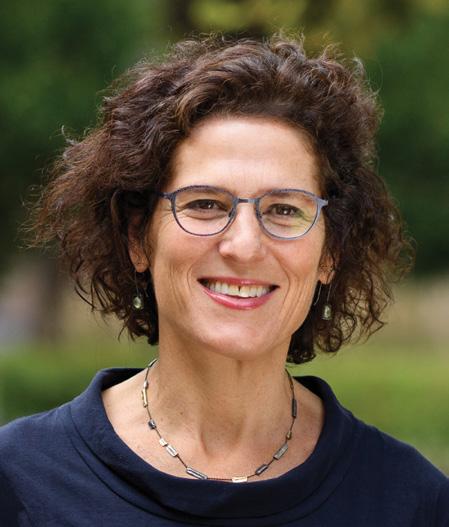
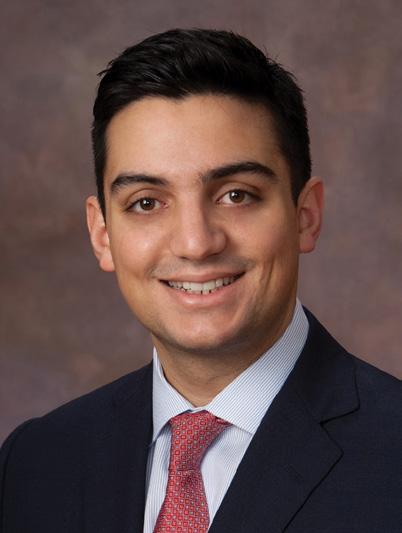
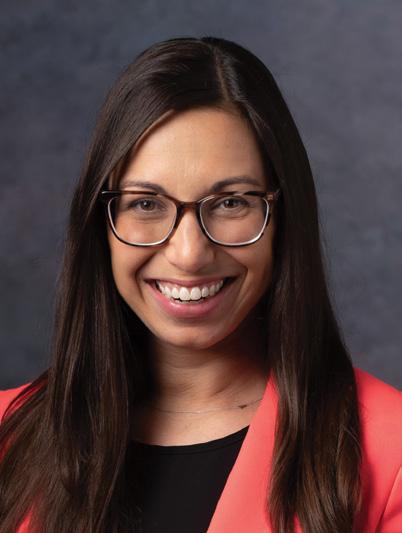
piece of work that I could use to demonstrate my interest in the field, and it was a great way to set myself apart in the job market.” Today, Minniti is a litigation associate at Paul Hastings LLP in New York City, where he focuses on complex patent and IP-related litigation matters in the life science, medical device, and chemical sectors.
Daryl Wander Daly ’11
Daryl Wander Daly ‘11 leveraged her time with RIIPL by working on an academic paper assessing whether filing citizen petitions with the FDA was a tactic used by pharmaceutical brands to delay the entry of generic products into the market. For over a year, she worked alongside Professor Carrier reviewing citizen petitions and examining allegations; in 2012, the paper was published by the Cardozo Law
continued on page 11
THE U.S. DEPARTMENT OF COMMERCE, National Telecommunications and Information Administration (NTIA) released a report on AI accountability policy. It’s a synthesis of hundreds of stakeholder comments and consultations, research across disciplines, and agency input and makes recommendations for how the federal government can help foster an ecosystem for trustworthy and safe AI, including through guidance, support, and regulation. Ellen P. Goodman, RIIPL Co-Director, was the principal author arising out of her time serving as Senior Advisor for Algorithmic Justice at NTIA.
2023
FORMER FEDERAL CIRCUIT COURT JUDGE
Kathleen O’Malley delivered the 2023 Greg Lastowka Memorial Lecture. She served on the bench for nearly 30 years, including serving on the U.S. Court of Appeals for the Federal Circuit. Judge O’Malley discussed patent law and other issues with RIIPL Co-Director Michael Carrier. The annual lecture honors Rutgers Law School Professor Greg Lastowka, an expert in cyberlaw, who died of cancer in 2015.
2024
KARYN A. TEMPLE, SENIOR EXECUTIVE VICE President and Global General Counsel for the Motion Picture Association, presented: “Chicken Little Was Wrong: A Site-Blocking Retrospective and Roadmap for the Future” to a packed audience of students and faculty at Rutgers Law in Camden in March 2024. Ms. Temple explained the importance of measures like blocking piracy websites for targeting illegal infringement. She is one of the world’s leading authorities on copyright.
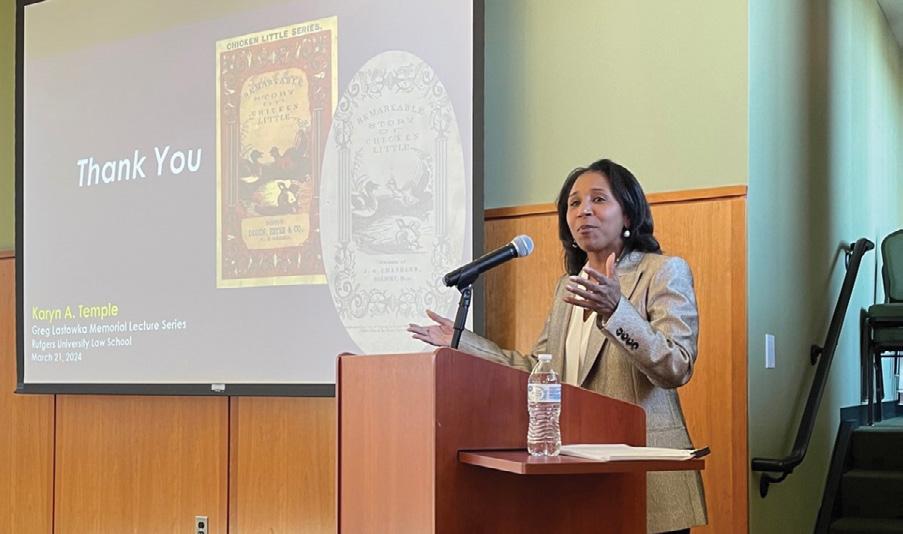
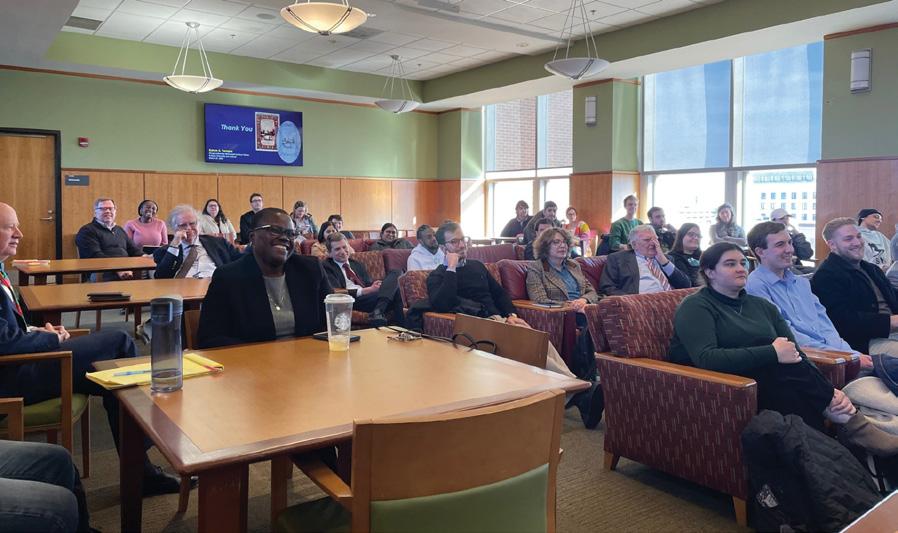

RUTGERS LAW SCHOOL DISTINGUISHED PROFESSOR
John Oberdiek won the 2023 Fred Berger Memorial Prize in Philosophy of Law, awarded by the American Philosophical Association (APA). His article, The Wrong in Negligence, was published in 2021 in the Oxford Journal of Legal Studies. As part of the prize, the APA hosted a special symposium on the topic of the article in April 2023 at its Pacific Division meeting in San Francisco, California. The prize session featured commentary on Professor Oberdiek’s article by Penn Carey Law School Professor Emeritus Stephen Perry and University of Illinois College of Law Professor Heidi Hurd.
The Fred Berger Memorial Prize was established by the APA in memory of Professor Berger of the University of California at Davis. The prize is awarded every two years to an outstanding published article in philosophy of law by an APA member.
THE RUTGERS INSTITUTE FOR LAW AND PHILOSOPHY (ILP) hosted two major conferences in 2023. ILP was selected to host the 10th annual North American Workshop in Private Law Theory in November. This two-day, invitation-only event is the leading conference in private law theory. Previous host institutions include Yale, UCLA, Toronto, and McGill. ILP also hosted a Conference on Law’s Rule, examining Gerald Postema’s book on the rule of law. The event brought together several leading scholars working at the intersection of law, philosophy, and political theory. The papers from the conference will be published in a forthcoming issue of the journal, Law and Philosophy
Center for Corporate Law and Governance
Douglas S. Eakeley, Co-Director
Vice Dean Arthur B. Laby, Co-Director https://cclg.rutgers.edu
Center for Gender Justice and Law
Suzanne A. Kim, Director https://cgslp.rutgers.edu
Center for Immigrant Justice
Rose Cuison-Villazor, Director https://cilpj.org
Center for Risk and Responsibility
Jay Feinman, Co-Director
Rick Swedloff, Co-Director
Adam Scales, Co-Director https://crr.rutgers.edu
CENTER FOR CORPORATE LAW AND GOVERNANCE

Chrystin Ondersma
n Dignity Not Debt: An Abolitionist Approach to Economic Justice, University of California Press (2024)
CENTER FOR GENDER JUSTICE AND LAW

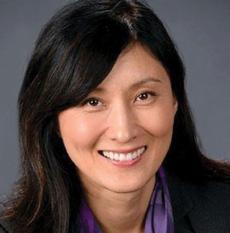
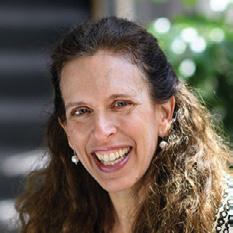
Carlos A. Ball
n Balancing Abortion, 63 Santa Clara L. Rev. (forthcoming).
Suzanne A. Kim
n Bringing Visibility to AAPI Reproductive Care, UCLA L. Rev. Discourse (forthcoming 2024).
Amy H. Soled
n Gender Pay Disparity, the COVID-19 Pandemic, and the Need for Reform, 87 Brooklyn L. Rev. 953 (2022).
CENTER FOR IMMIGRANT JUSTICE
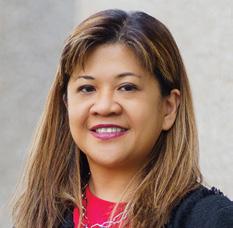
Rose Cuison-Villazor
n Integrating Spaces: Property Law and Social Identity, Second Edition, (with Kali N. Murray, Alfred L. Brophy, and Alberto Lopez), Aspen Publishing (2024).
ONLINE TOOL
continued from page 5
What is the long-term goal of the project?
We aim to improve the market for homeowners insurance by improving the information available to consumers. State regulators in a few states post online commonly used policy forms and comparisons of key provisions, but
Center for Security, Race and Rights
Sahar Aziz, Director https://csrr.rutgers.edu
Center for Transnational Law
Jorge Contesse, Director https://go.rutgers.edu/ CenterforTransnationalLaw
Center on Criminal Justice, Youth, Rights, and Race
Laura Cohen, Director
Center on Law, Inequality and Metropolitan Equity
David D. Troutt, Director https://www.clime.rutgers.edu
Institute for Information Policy & Law
Michael A. Carrier, Co-Director
Ellen P. Goodman, Co-Director https://riipl.rutgers.edu
CENTER FOR SECURITY, RACE AND RIGHTS
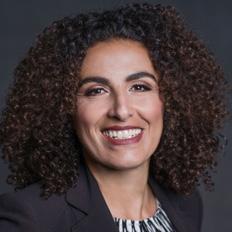
Sahar Aziz
n Race, Entrapment and Manufacturing “Homegrown Terrorism,” 111 Georgetown L.J. 381 (2023)
n Global Islamophobia in an Era of Populism (eds. Sahar F. Aziz and John L. Esposito) Oxford University Press (2024).
CENTER FOR TRANSNATIONAL LAW
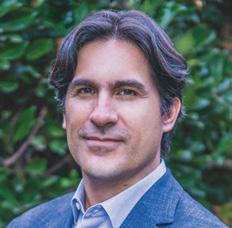
Jorge Contesse
n International Law Scholarship in Latin America, Virginia Journal of International Law, Vol. 64, No. 2 (2024).
n The American Convention on Human Rights in Latin American Domestic Courts, (Catherine O’Regan, Carlos Bernal & Sujit Choudhry (eds.), Research Handbook on Constitutional Interpretation), Edward Elgar Publishing (forthcoming 2024).
CENTER ON LAW, INEQUALITY AND METROPOLITAN EQUITY
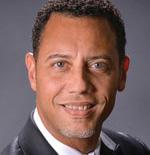
David Dante Troutt n “Racial Bargaining for Housing in Newark” in Newhouse and Gorlin, eds, Housing the Nation: Social Equity, Architecture, and the Future of Affordable Housing (Rizzoli 2024)
n Urban Renewal’s Grandchildren: Remedying the Persistent Effects of Post-War Race Planning, Fordham Urban Law Journal (forthcoming).
every state should do that. And to improve information on quality, regulators also should publish data about companies’ records in paying claims. Then homeowners will have access to information that will help them make wise buying decisions, and insurance companies will respond by providing better information and better coverage.
Institute for Law and Philosophy
Adil Haque, Co-Director
Doug Husak, Co-Director
John Oberdiek, Co-Director
Dennis Patterson, Co-Director
Alec Walen, Co-Director https://lawandphil.rutgers.edu
Center for State Constitutional Studies
Robert F. Williams, Director Emeritus https://statecon.camden.rutgers.edu
Staff
Habibah Johnson, Newark Program Coordinator
Katie Sferra, Newark Program Coordinator
Carol Shaner, Camden Program Coordinator
INSTITUTE FOR INFORMATION POLICY AND LAW
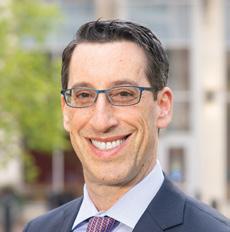
Michael A. Carrier
n Why is FRAND Hard?, 2023 Utah L. Rev. 931 (2023).
n Prior Bad Acts and Merger Review (with Gwendolyn J. Lindsay Cooley), 111 Georgetown Law Journal Online 106 (2022)
n How the Federal Trade Commission Can Use Section 5 To Strengthen the Right to Repair, 37 Berkeley Technology Law Journal 1145 (2022) (symposium).
INSTITUTE FOR LAW AND PHILOSOPHY


Dennis Patterson
n “The Promise and Limits of Grounding in Law,” Legal Theory 2024 (with Bosko Tripkovic).
Adil Haque
n “After War and Peace,” in The Individualization of War: Rights, Liability, and Accountability in Contemporary Armed Conflict (Jennifer Welsh, Dapo Akande, and David Rodin, eds., Oxford 2023).
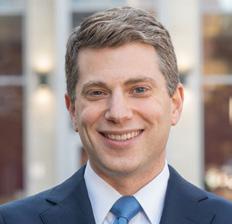
Matthew Shapiro n Democracy, Civil Litigation, and the Nature of Non-Representative Institutions, Cornell Law Review (2024).
Is this solely a pro-consumer project? The project is pro-consumer, but it also is pro-insurer. One of the takeaways is that many homeowners should buy better insurance and more insurance, and that’s good for insurance companies’ bottom lines.
•••••••••
FOR CRIMINAL
(continued from pg. 8)
THE NEW JERSEY INNOCENCE PROJECT
(NJIP) at Rutgers University advocates for the exoneration, release, and restoration to society of innocent people incarcerated in New Jersey. Officially launched in 2022 under the aegis of the Rutgers Criminal and Youth Justice Clinic, the NJIP represents factually innocent people in New Jersey in their efforts to vacate their wrongful convictions and obtain their freedom from incarceration. It is the first New Jersey affiliate of the National Innocence Network. Since opening its doors in 2022, the Project’s small but dedicated team accomplished much, including:
Grant Funding
NJIP has received its first federal grant, a prestigious award from the U.S. Department of Justice's Bureau of Justice Assistance (BJA). One of only 16 grants made nationally through BJA's competitive “Upholding the Rule of Law and Preventing Wrongful Convictions" program, the funding will make it possible for NJIP to hire two additional staff members: a staff attorney and a paralegal/investigator. The grant also will enable NJIP to gather and analyze data to (1) measure success of the project; and (2) identify the causes of and promote policy reforms to reduce the risk of wrongful convictions in New Jersey and improve the overall administration of justice in the state. According to NJIP Director Laura Cohen, “This transformative support will allow us to build on our early success and provide crucial representation to more innocent incarcerated New Jerseyans. We are grateful to BJA for its vote of confidence in the project.” Upgraded status within the Innocence Network
NJIP has been promoted from provisional to full membership within the national Innocence Network.
NJIP Charges Ahead
Being a full member allows NJIP to benefit from the Network’s significant resources, including crucial connections with innocence practitioners around the country, training opportunities, guidance from Network staff, and other support.
Intake Roll-Out
Managing Attorney Nyssa Taylor established a multistage intake process to evaluate, categorize, and prioritize the more than 200 applications that have streamed into the office since the Project’s launch. The first stage is a simple application to determine eligibility. In the second stage, applicants submit a detailed questionnaire with information about their case, previously filed briefs, judicial opinions, and discovery. In stage three, NJIP conducts a rigorous investigation into the person’s innocence claim by gathering and reviewing court documents, defense files, transcripts, and other resources. At the conclusion of this intensive process, NJIP determines whether to take the applicant on as a client.
Growing the Team
This summer, NJIP benefited from having two Rutgers Law student interns assisting with investigation, case review, and representation. The office has hired part-time staff to assist with intake and case management, and has begun training volunteer attorneys from local law firms and a corporate legal department who will assist in case analysis.
••••••••• INSTITUTE FOR INFORMATION POLICY AND LAW
(continued from pg. 9)

continued from page 9
TOP PHILADELPHIA INTELLECTUAL PROPERTY litigator Alex Goranin spoke to Rutgers students in February about cutting-edge issues relating to online data collection and web scraping. He discussed multiple theories relevant to these cases, including the Digital Millennium Copyright Act and trespass to chattels.
Review. It has been cited by multiple federal appellate and district courts.
This experience was invaluable for Daly when she landed an internship at a pharmaceutical company for her 2L summer and 3L year. “Having a handle on the scientific terminology and FDA approval process assisted my ability to understand the issues I was facing as an intern at a pharmaceutical company with no background in pharmaceuticals,” she says. Daly is currently counsel for Bristol Myers Squibb, where she supports the development and commercialization of pharmaceutical products.
In addition to these writing opportunities, RIIPL connects students with moot courts, events, job openings, and interdisciplinary collaboration with experts in computer science, economics, and other industries.
“RIIPL is an infrastructure consisting of diverse class offerings, a student organization, externships with federal judges, and more,” says Minniti. “All of this helps students set themselves up for life after law school.”
(continued from pg. 4)
RUTGERS CENTER FOR GENDER JUSTICE AND LAW’S Legal Profession Project (LPP) is studying and analyzing structural inequities within law firms. Led by professors Amy Soled and Suzanne Kim, in collaboration with Rutgers Law Student Research Fellow
Samantha Haquia ‘24, the project’s current work will culminate in a best practice guide that will suggest action items, based on existing empirical research, to dismantle the structures that cause gender and other inequities in law firms, with a particular focus on underrepresented groups in the legal profession. In April 2024, the center hosted a panel discussion at Rutgers Law School in which female law firm partners and in-house corporate counsel discussed successes bolstering gender equity in law firms as well as areas that still need improvement.
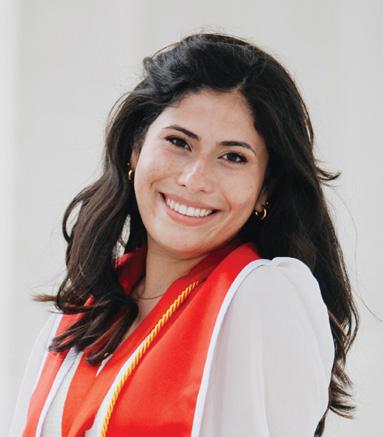
continued from page 4
from view and free from intrusion. (PUMP Act, 2022). The PUMP Act extended crucial workplace protections to millions of nursing mothers, entitling workers to federally mandated break time and pumping space for the first time.
Denial or delay of pregnancy accommodations and breastfeeding protections can lead to job loss and negatively impact workers’ economic well-being, and limited access and time to express milk can have detrimental health consequences. Women in lower-wage industries—many of whom are women of color —consistently report disproportionate rates of pregnancy discrimination and lack of access to accommodations for pumping at work. The PWFA and the PUMP Act address disparities in the treatment of pregnant and nursing workers to secure more equitable working conditions for millions of women.
INTERNATIONAL WORKSHOP
continued from page 7
In July, Professor Contesse presented at a conference on “Human Rights and Procedure” at the Max Planck Institute in Luxembourg. The conference gathered scholars from Europe and beyond to discuss the turn to procedure in human rights law.
The Center for Transnational Law (CTL) offers a space for academic reflection and practical application on the intersection of international, comparative, and domestic law. Such intersection creates both opportunities and challenges that the Center seeks to address. CTL takes advantage of the rich diversity that the Rutgers Law faculty offers to provide students a deeper and more complex understanding of the law, whether they go to private practice or public service.
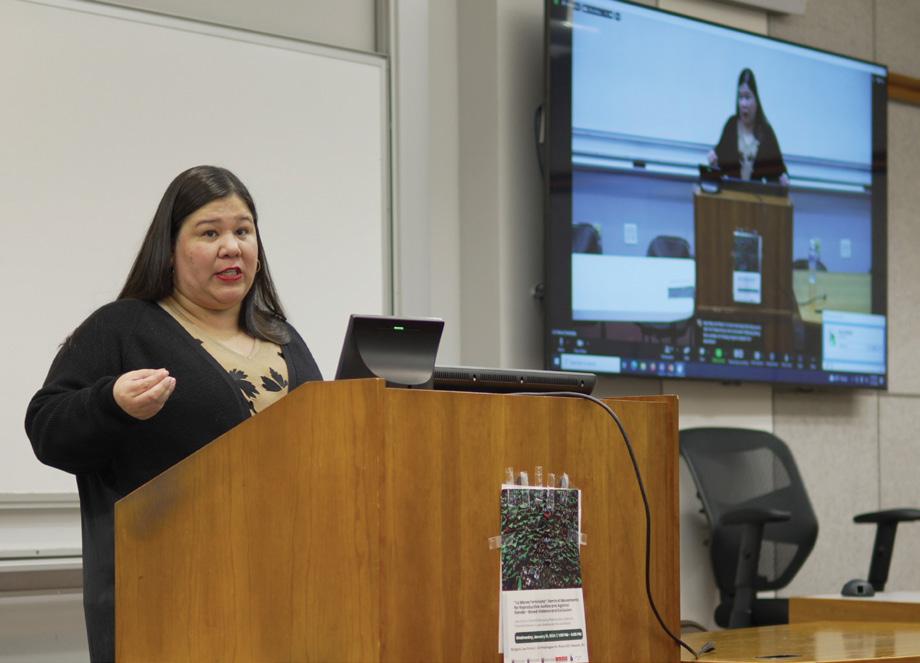
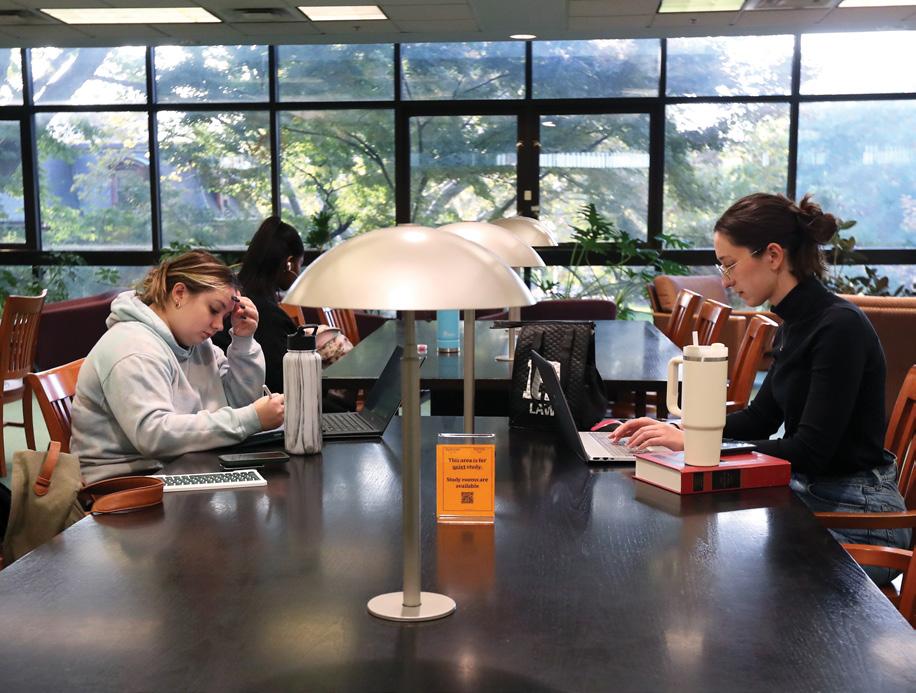
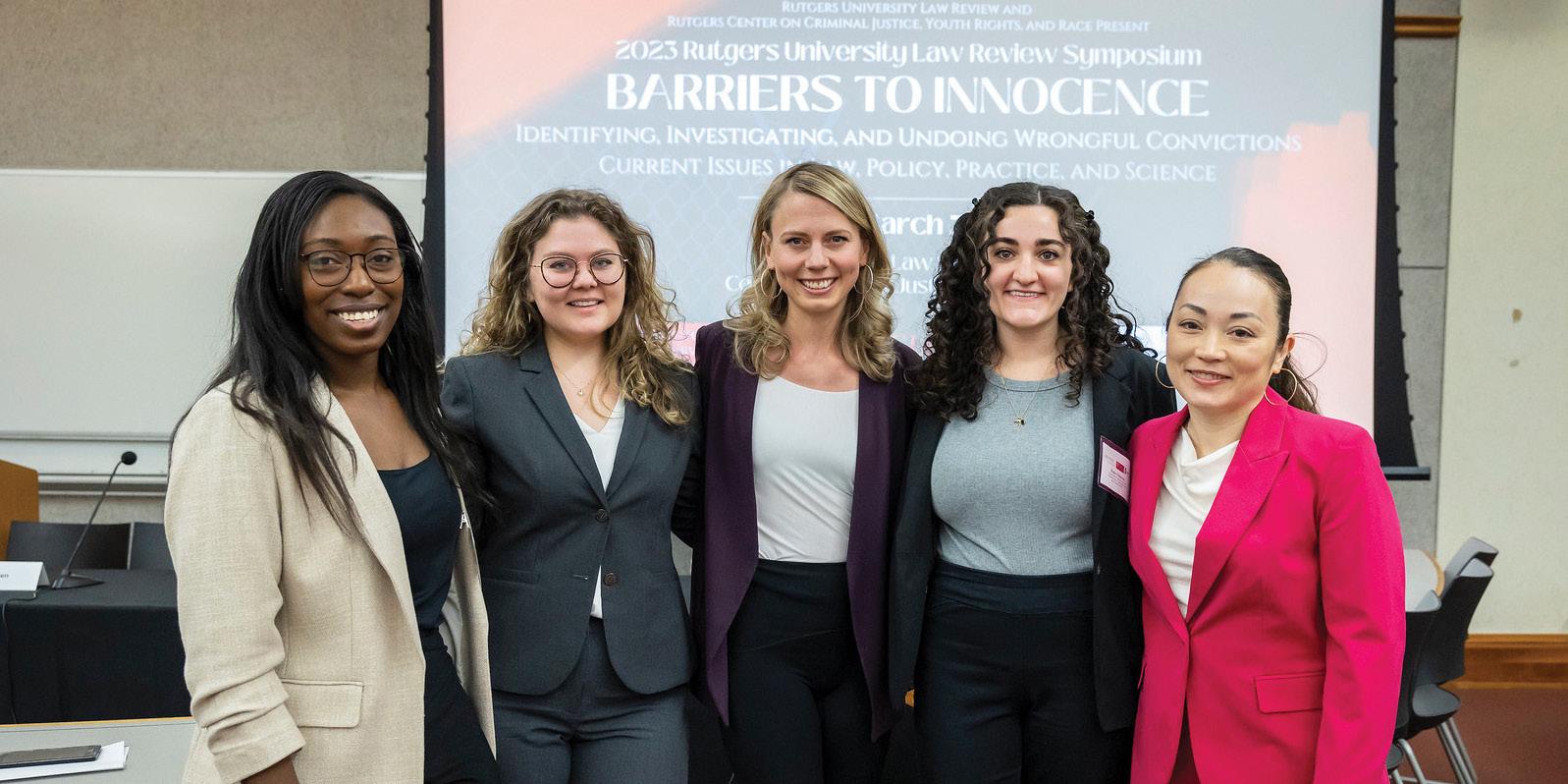
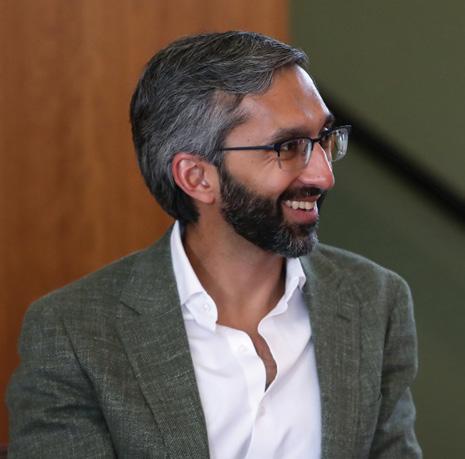
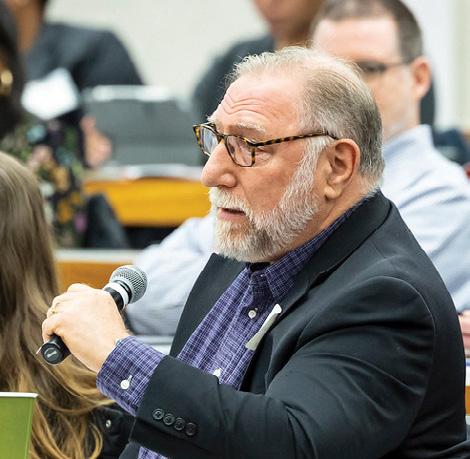
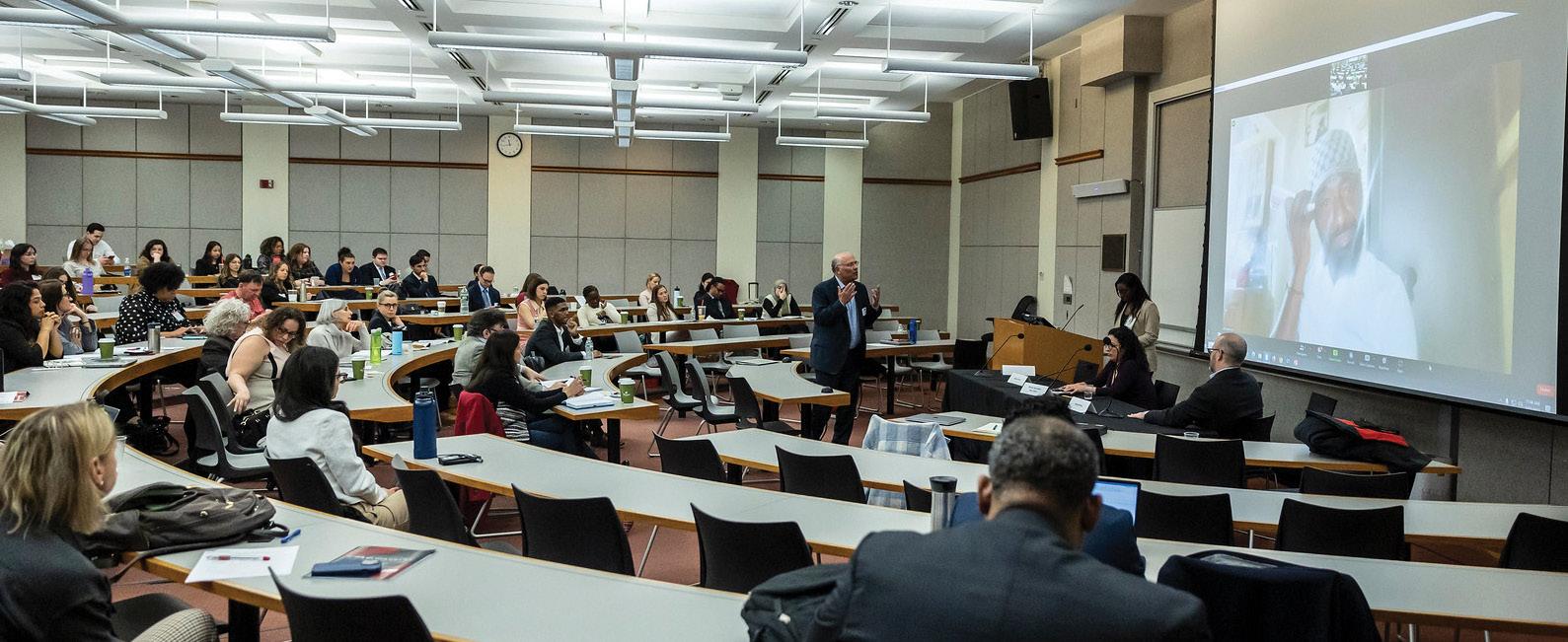
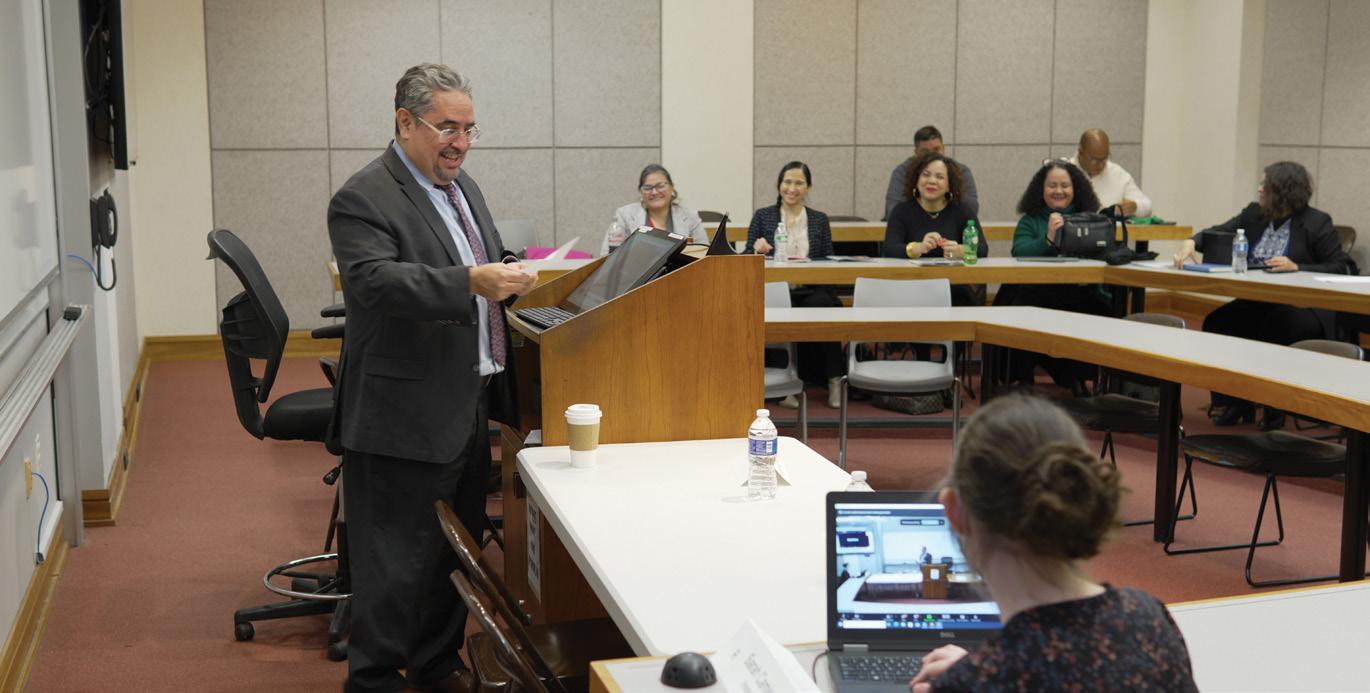
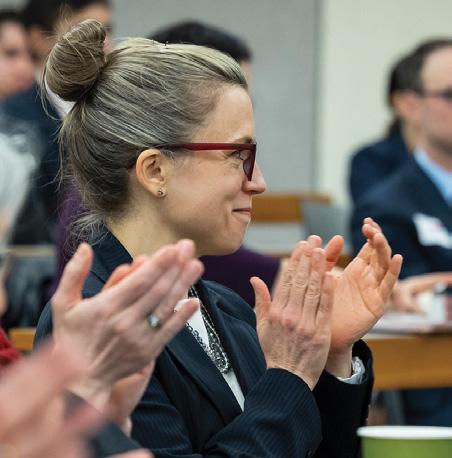
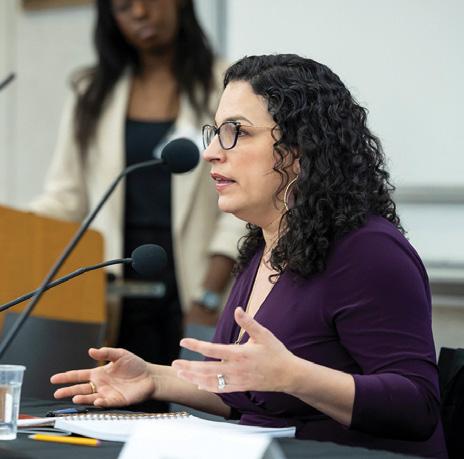
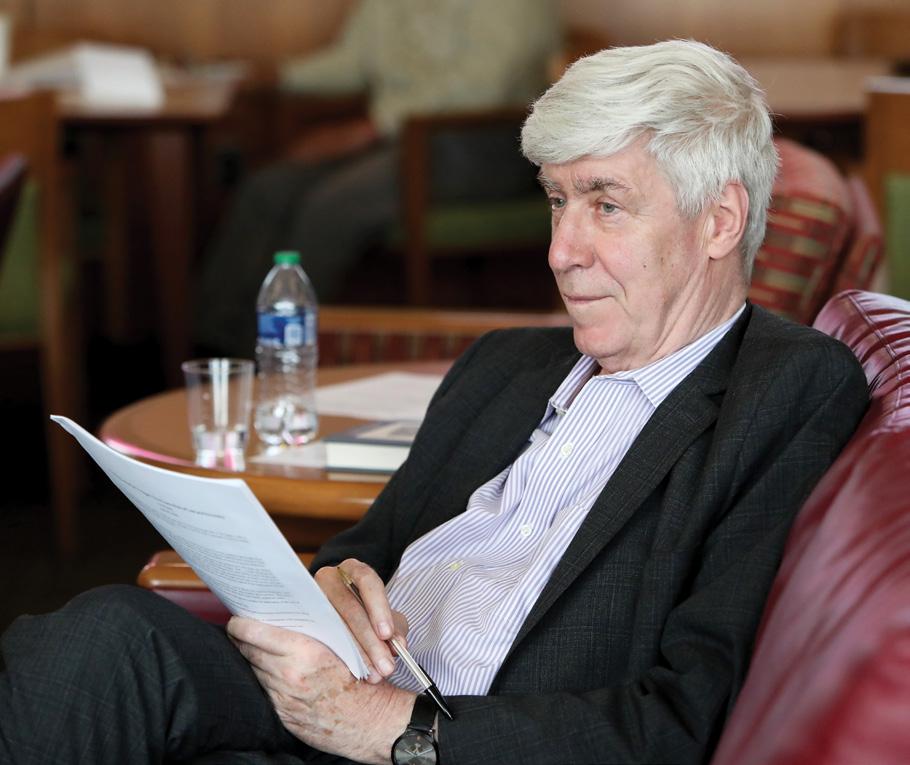
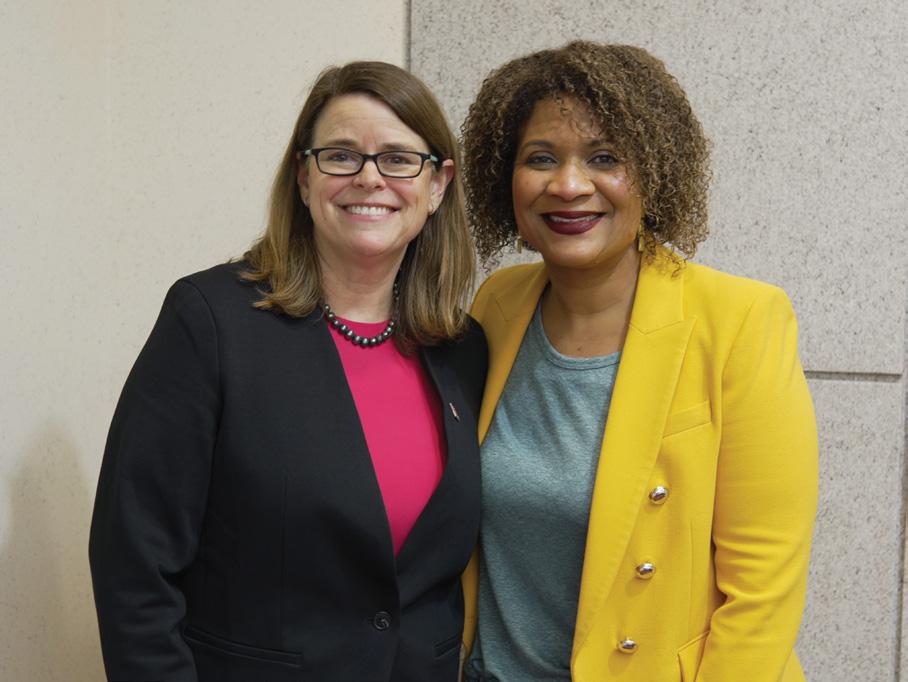
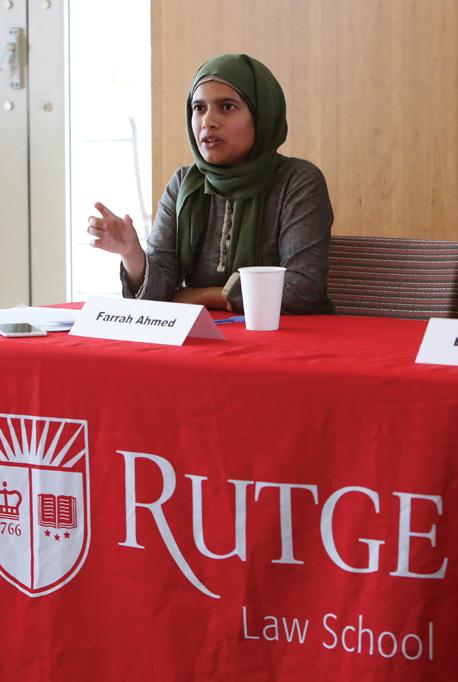

NEWARK CAMPUS
https://give.rutgersfoundation.org/ rutgers-law-school/ CAMDEN CAMPUS
https://give.rutgersfoundation.org/ campuses/
